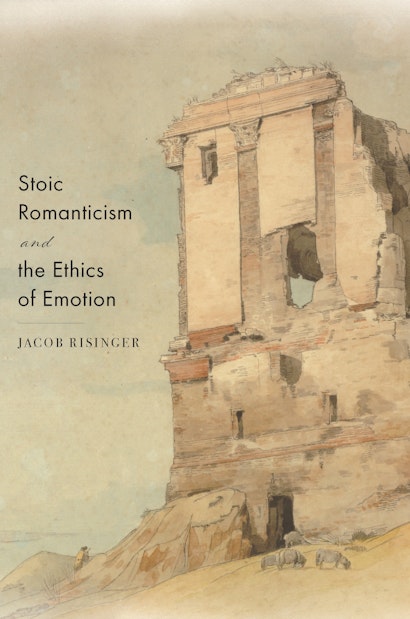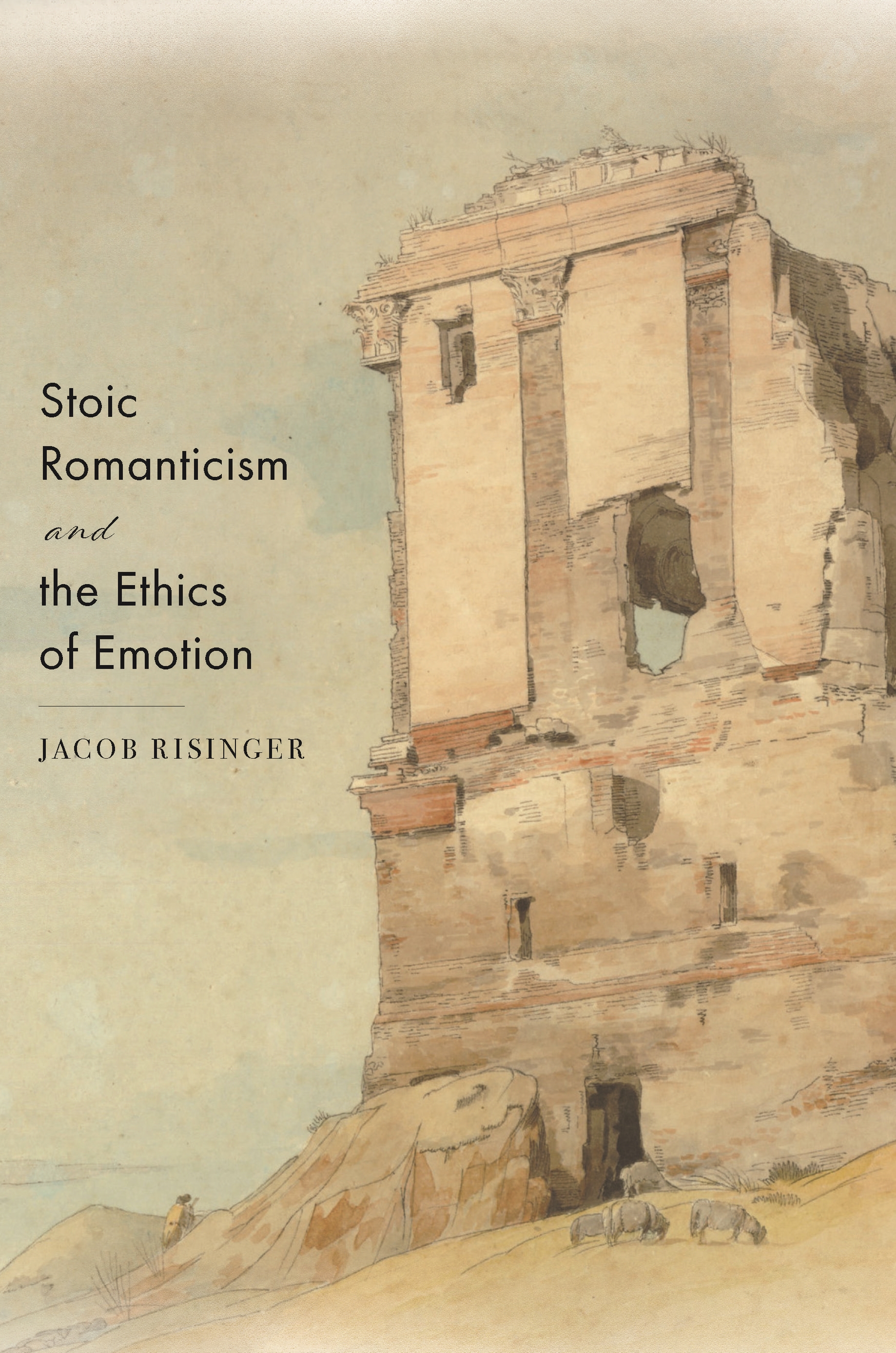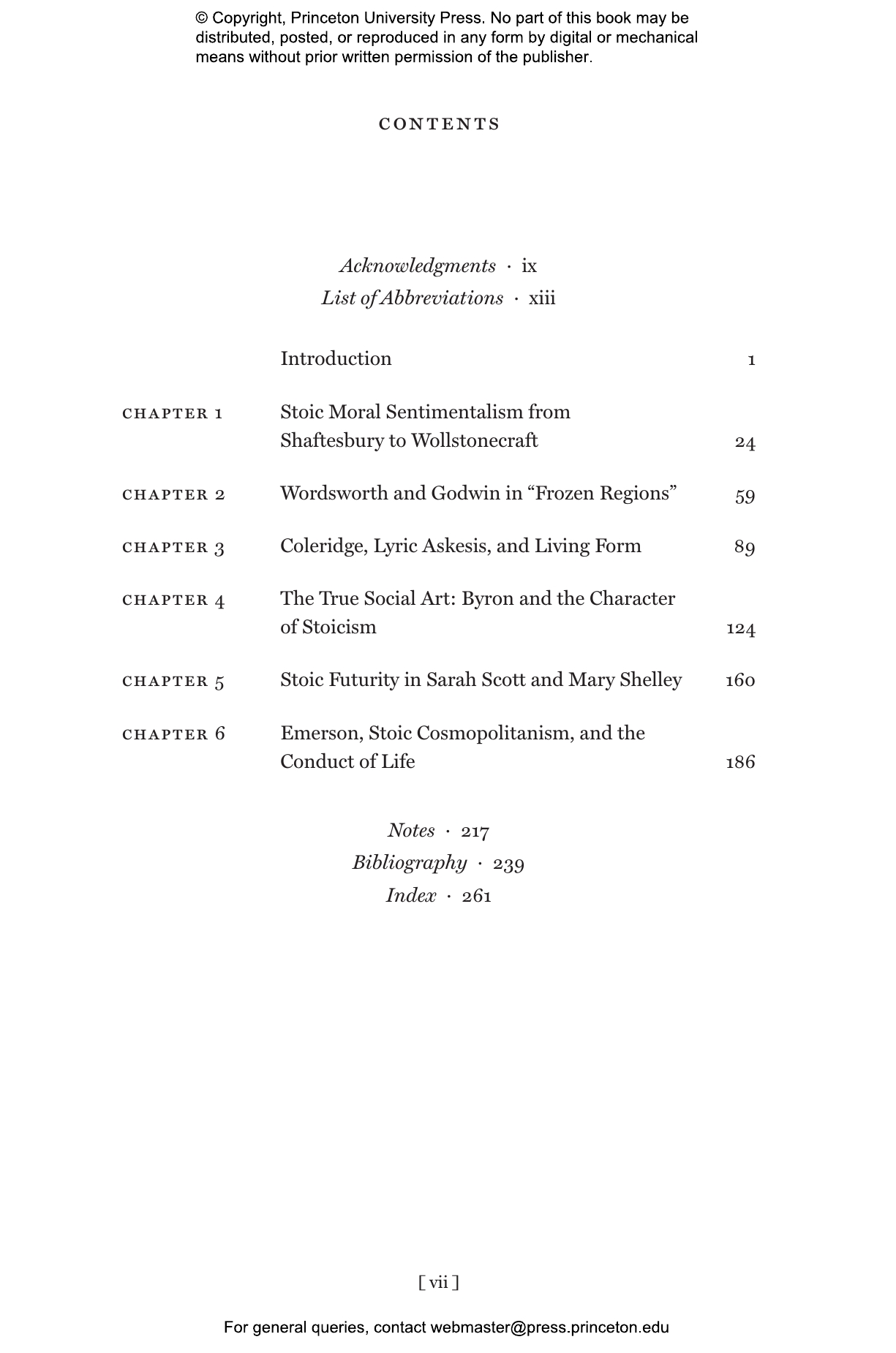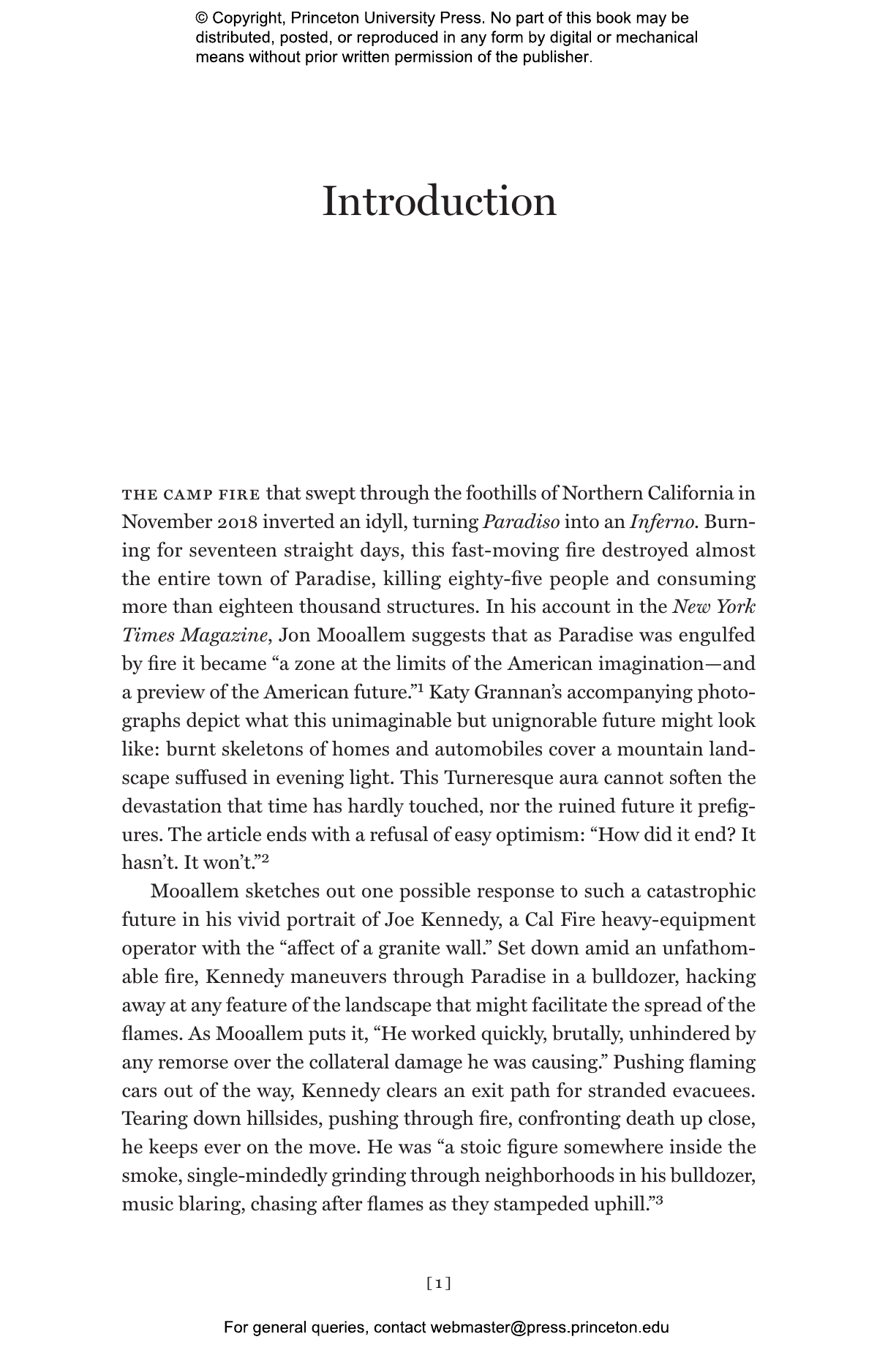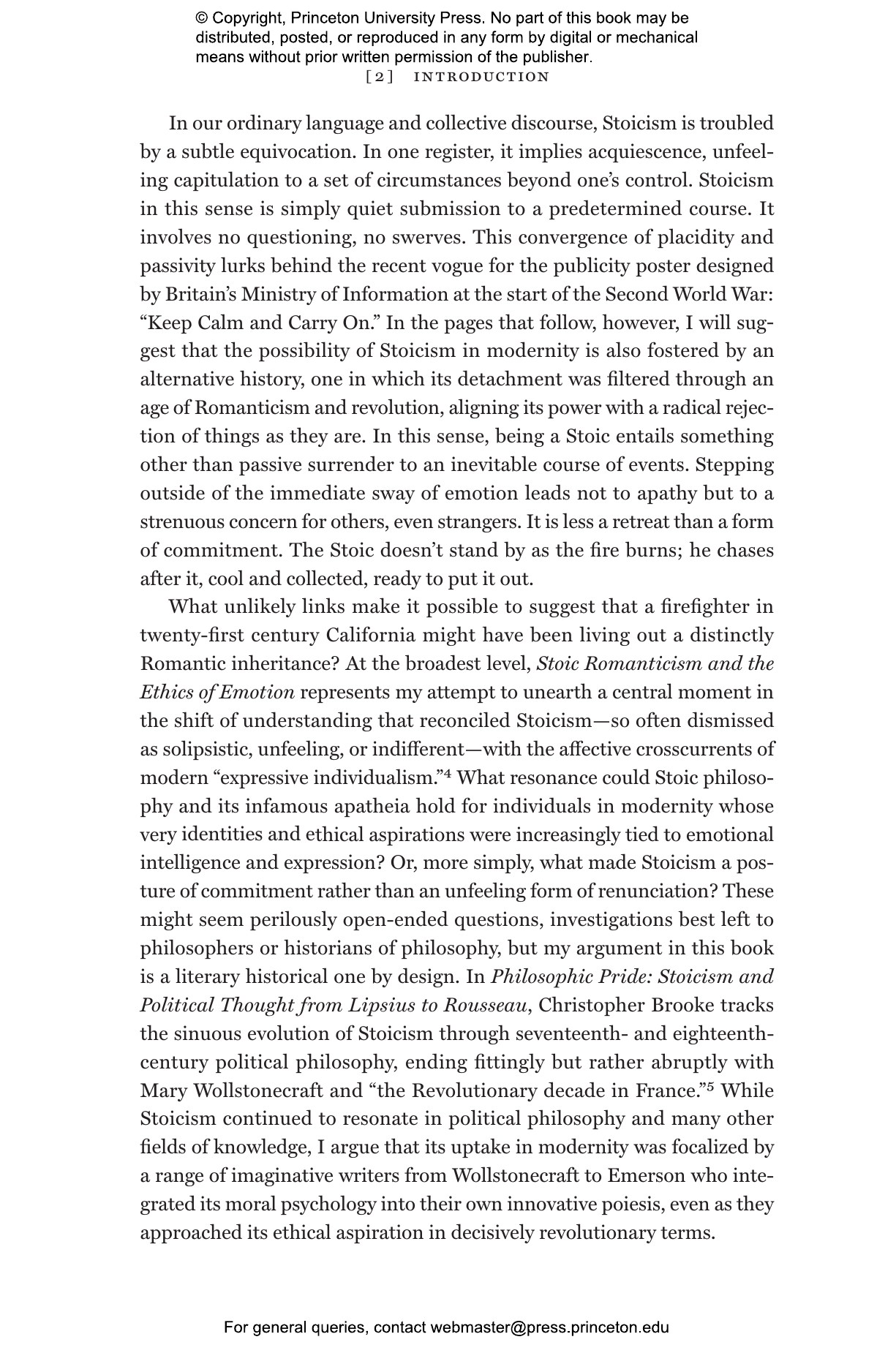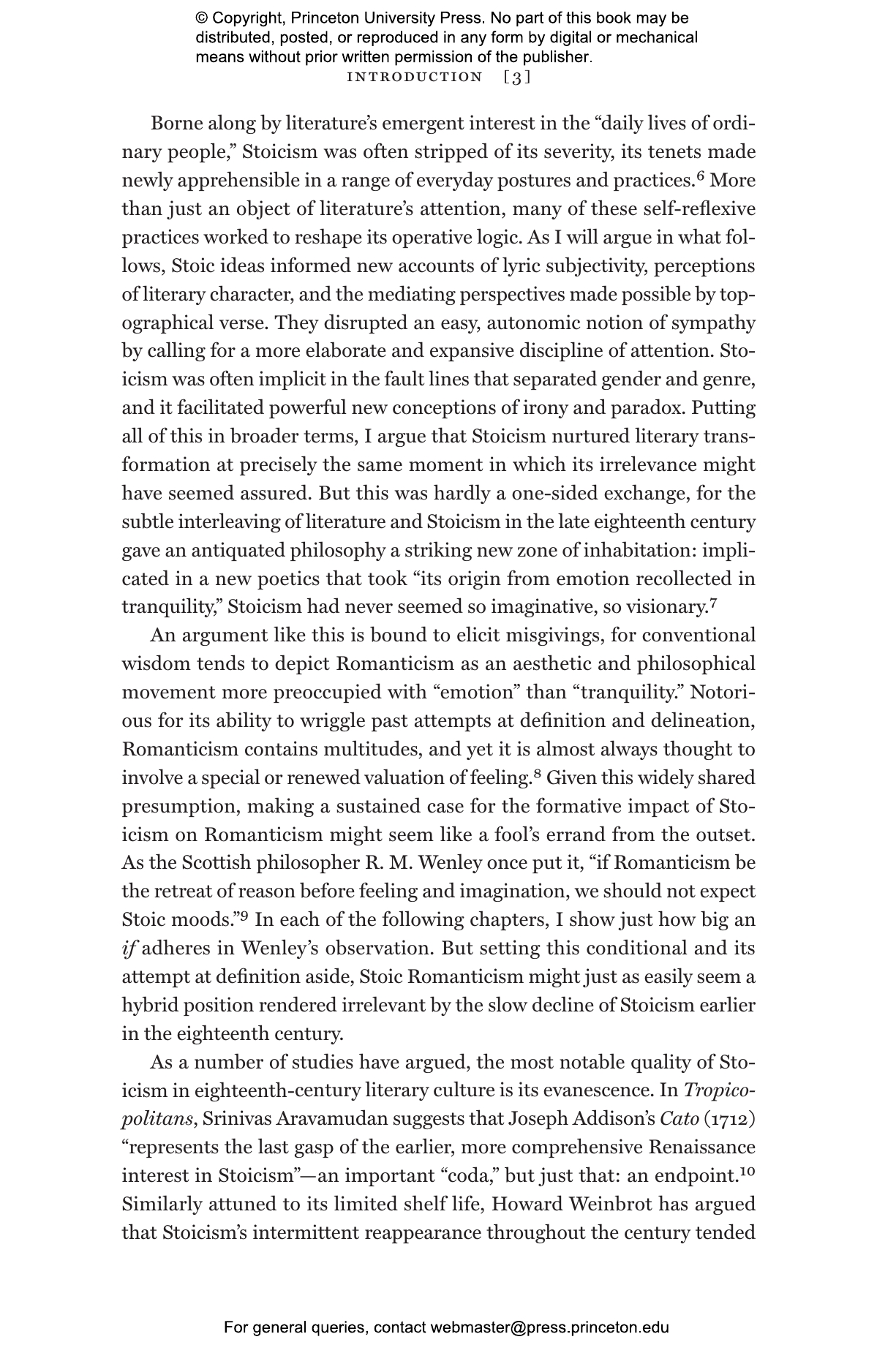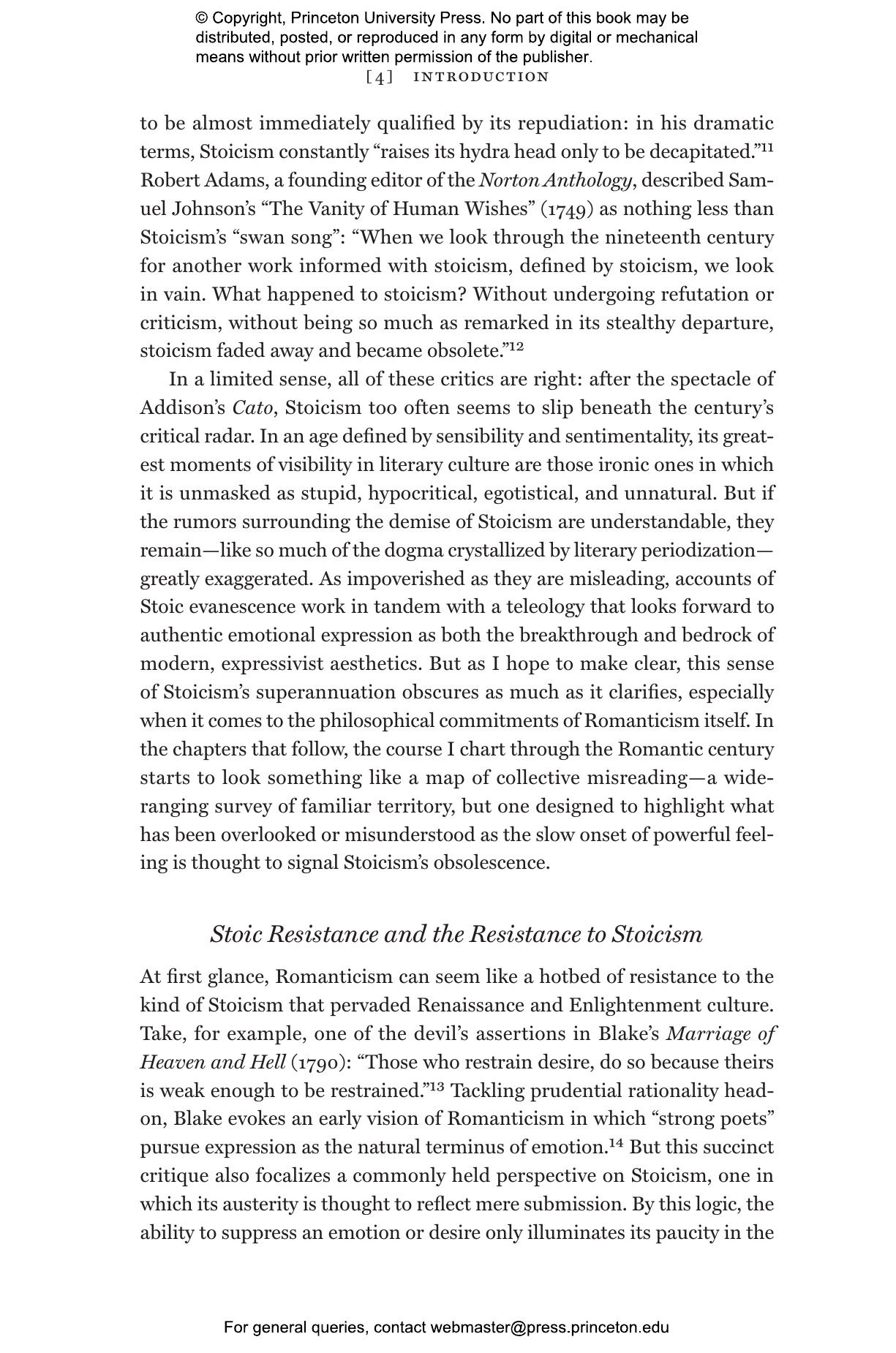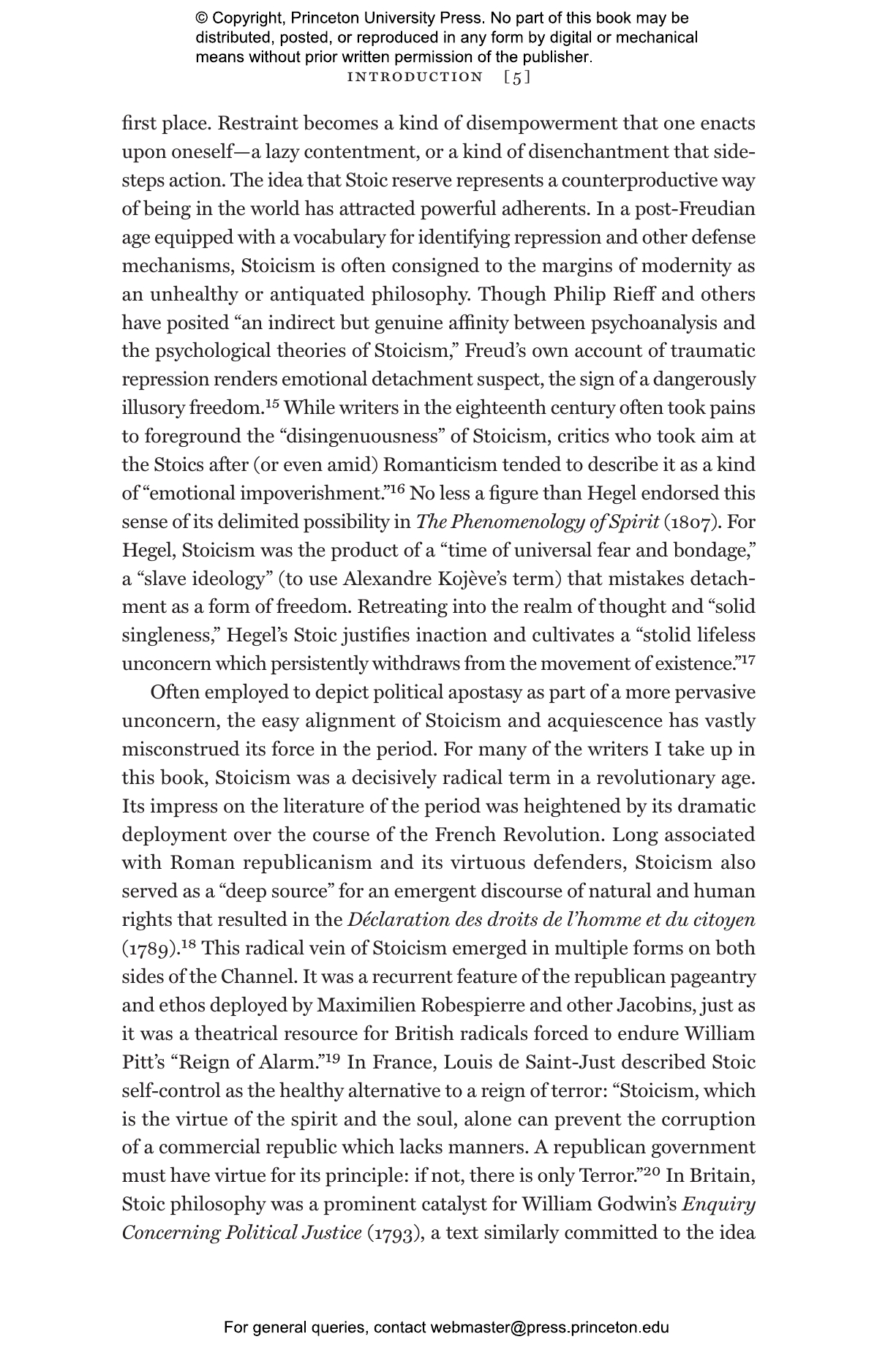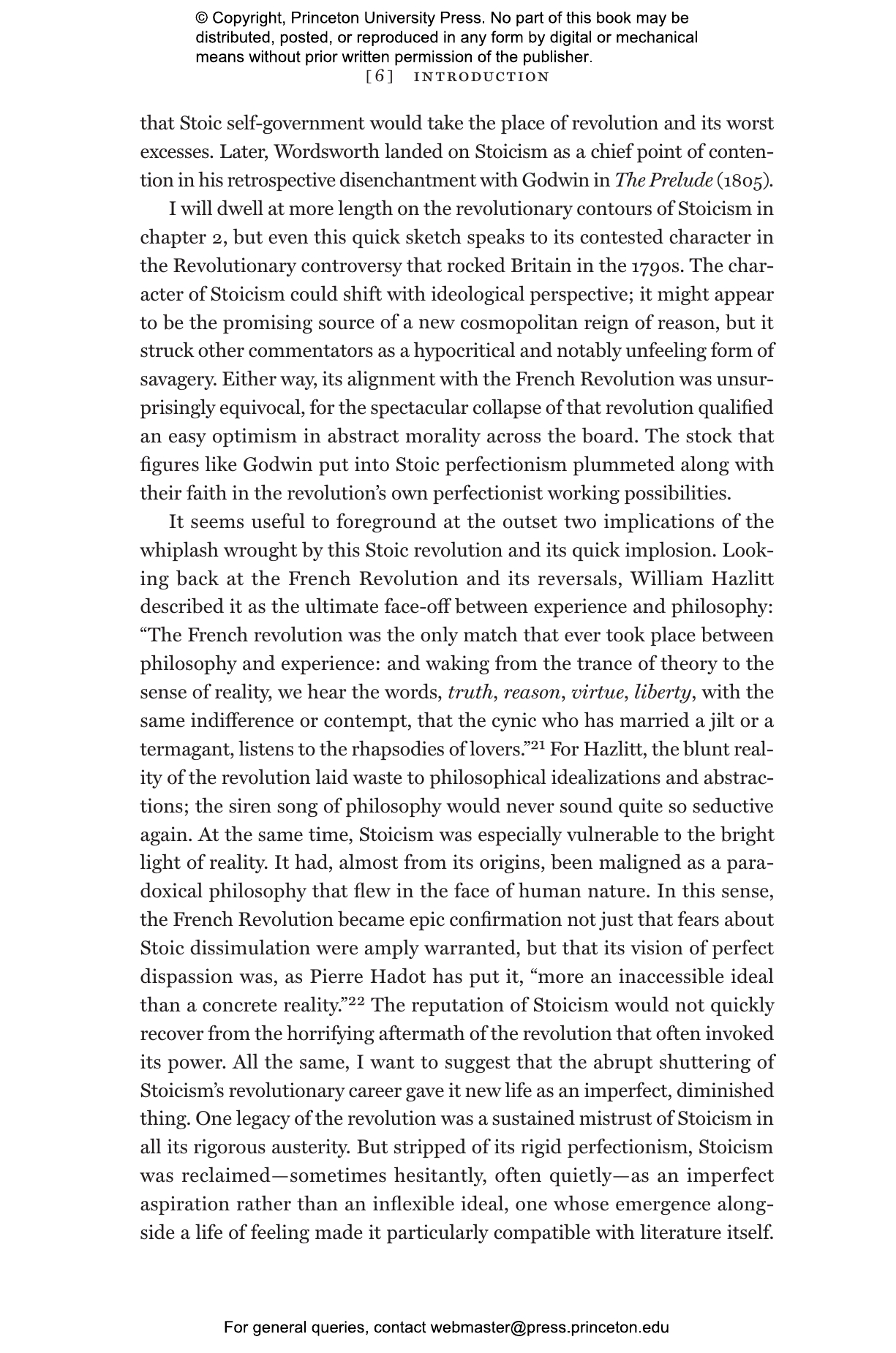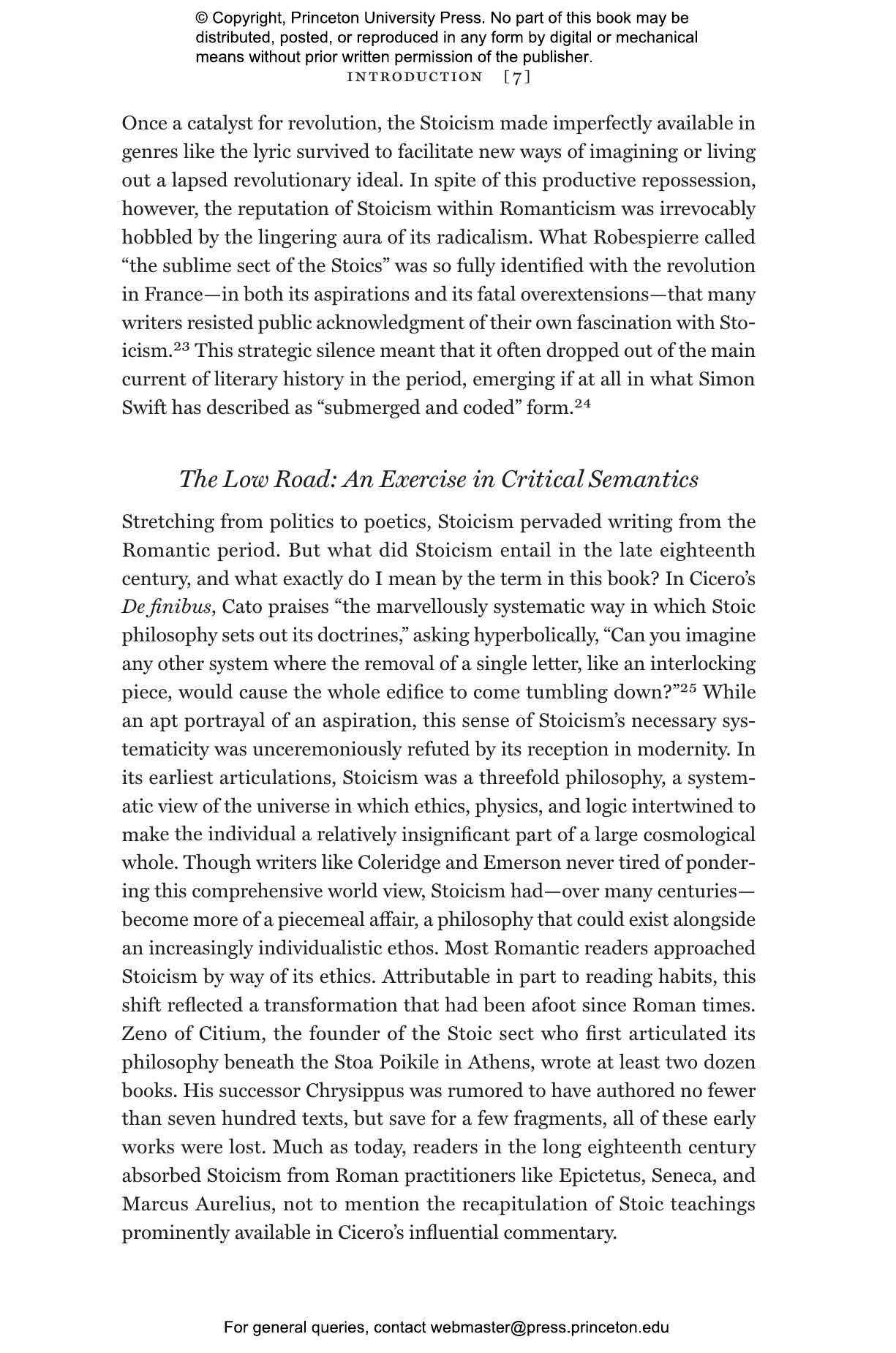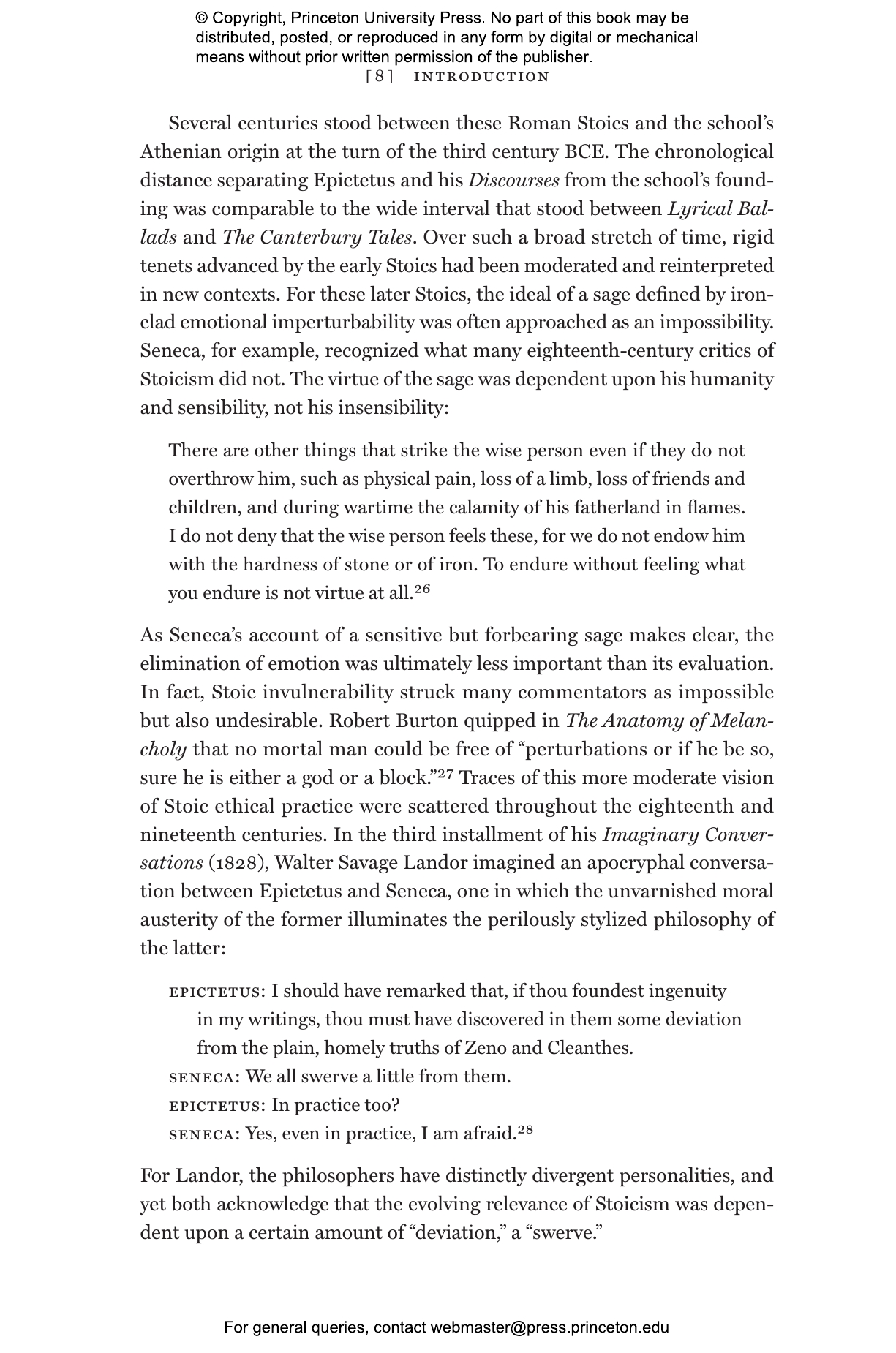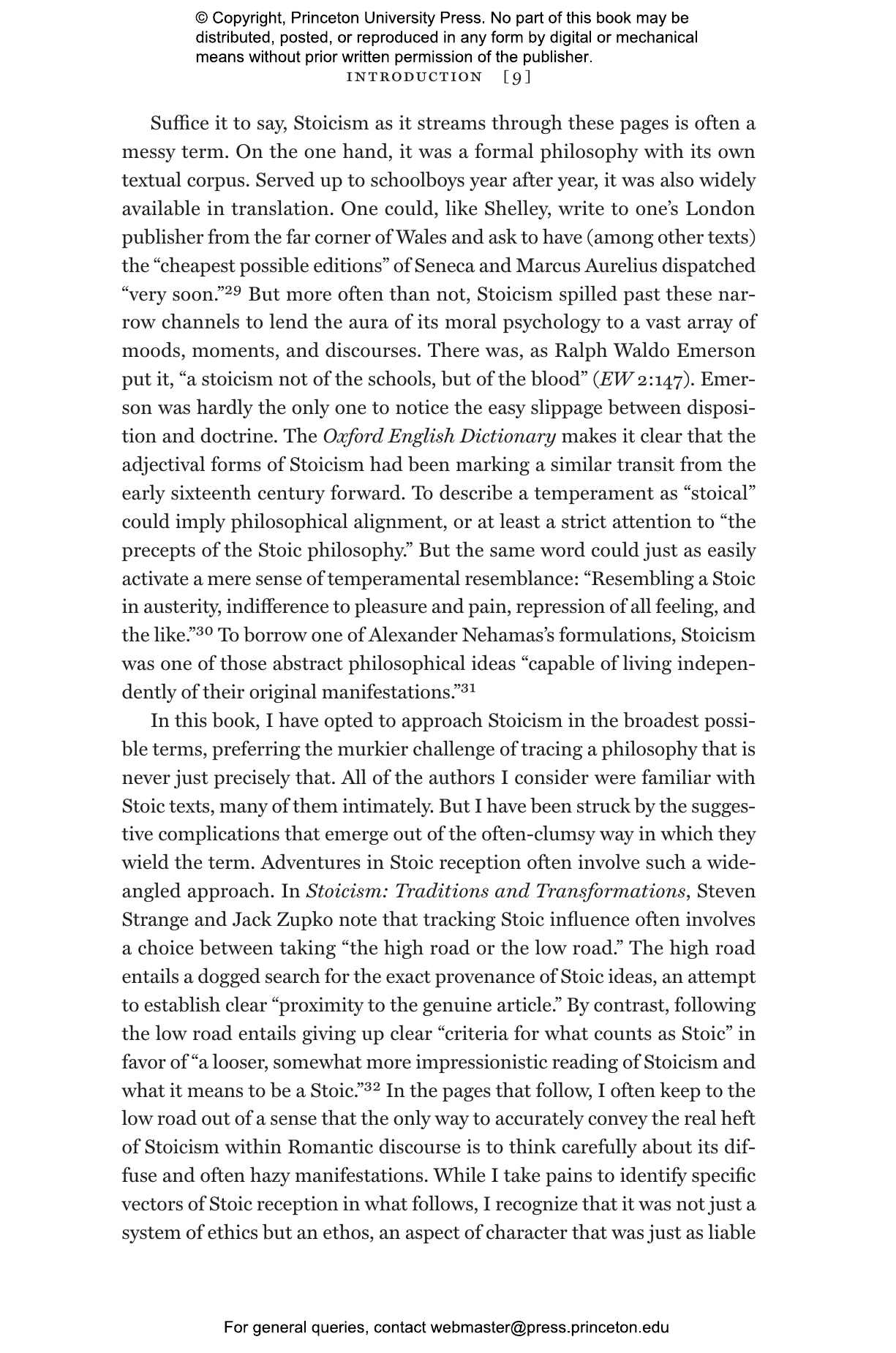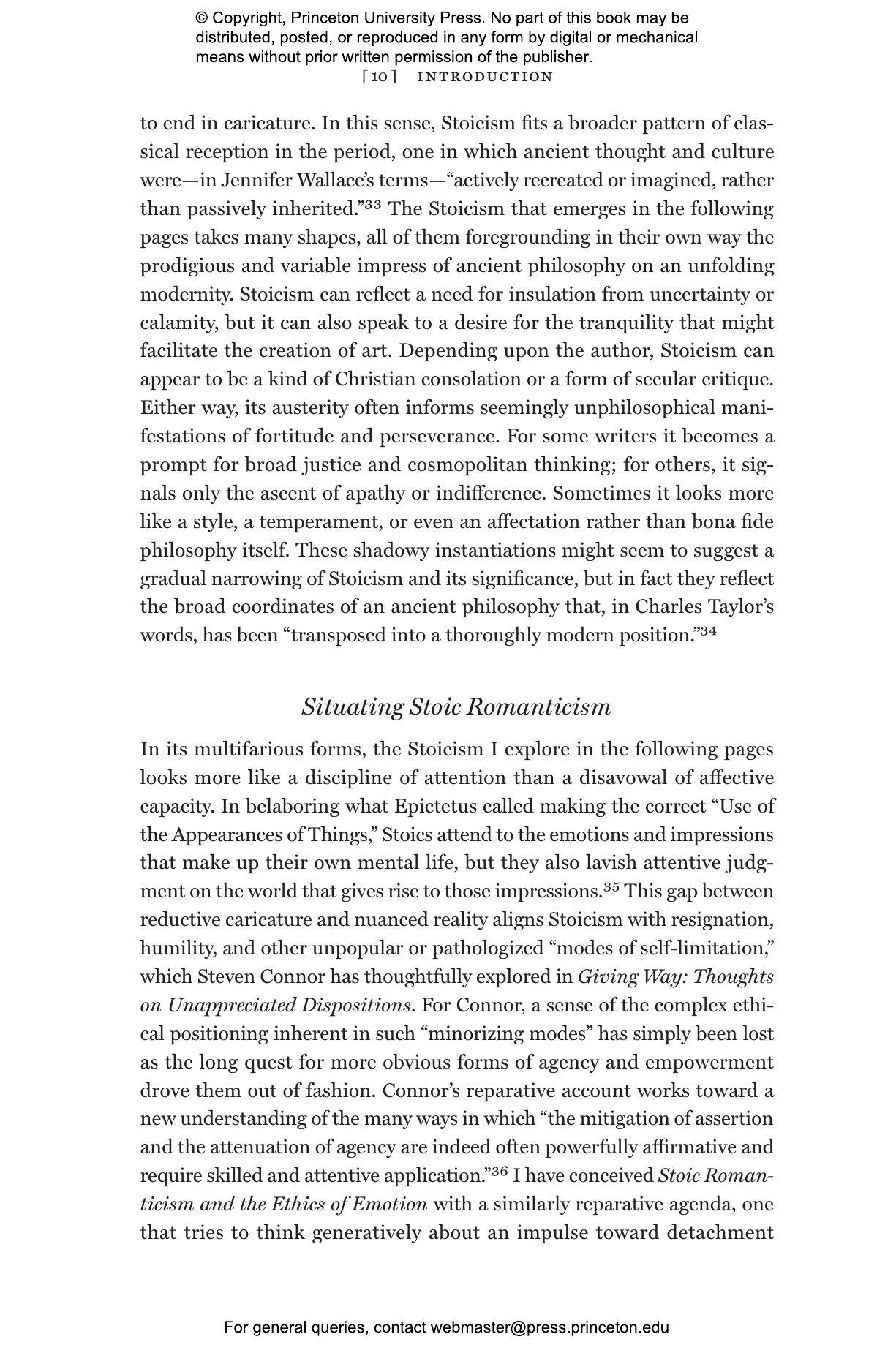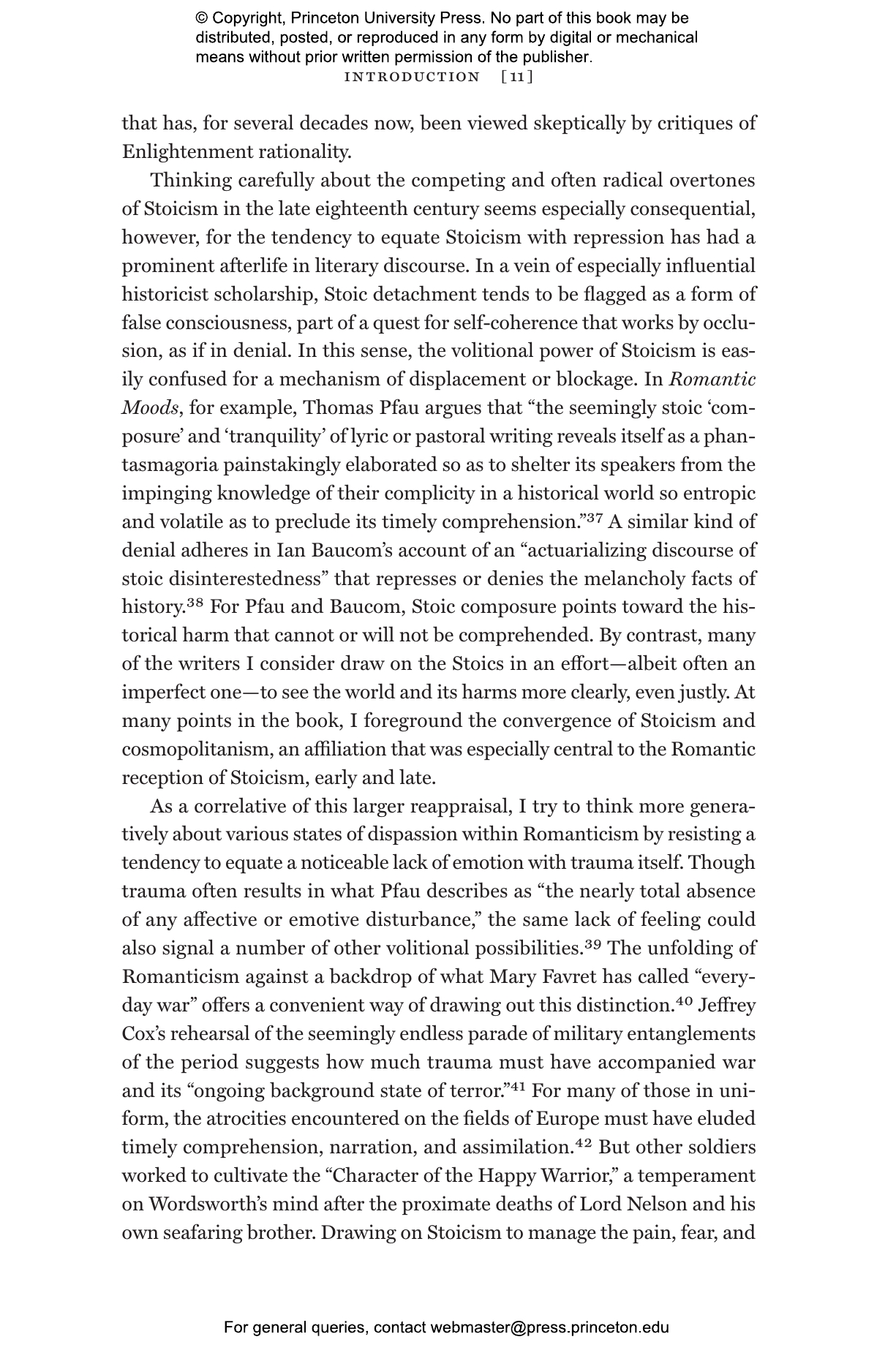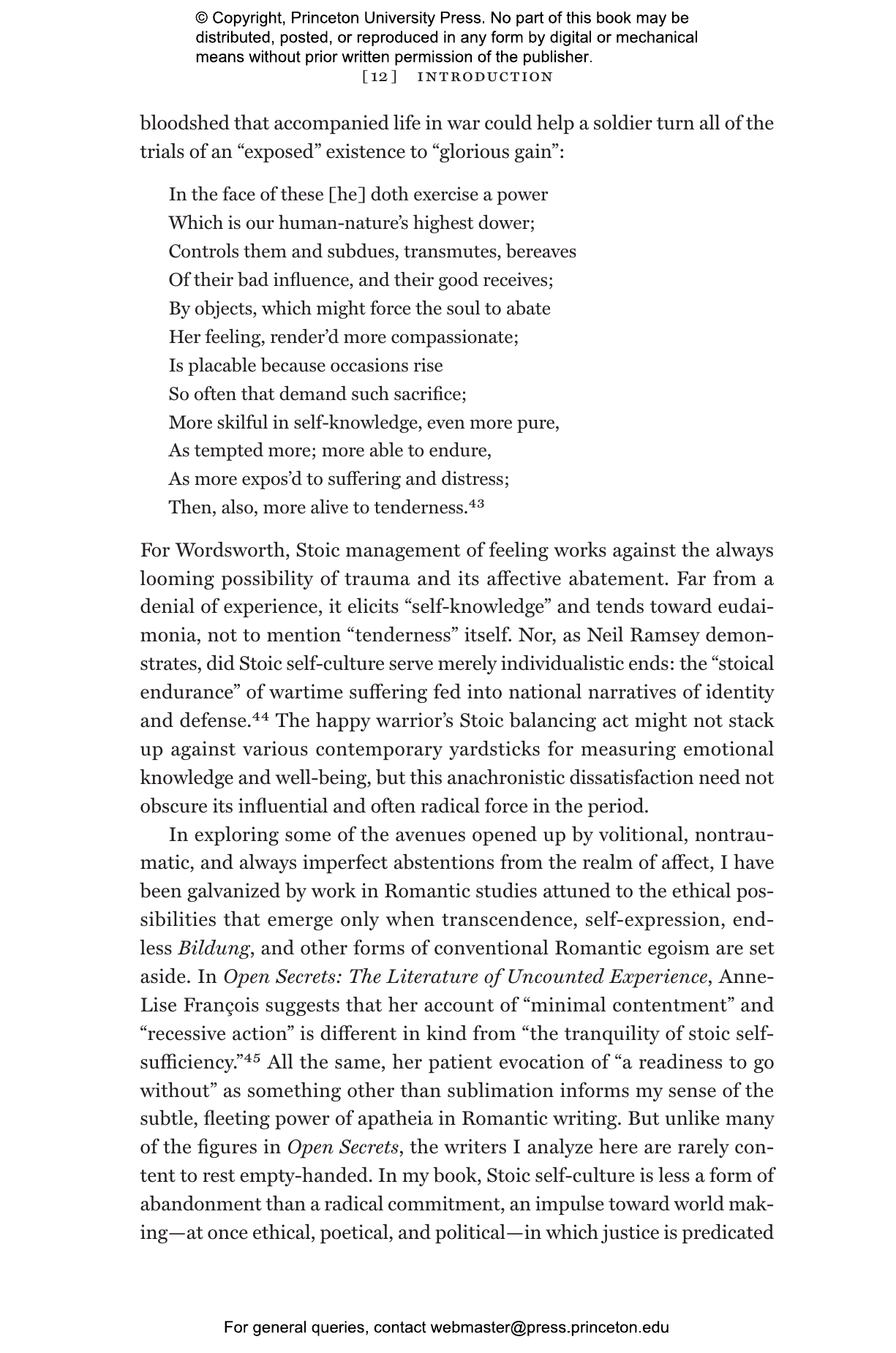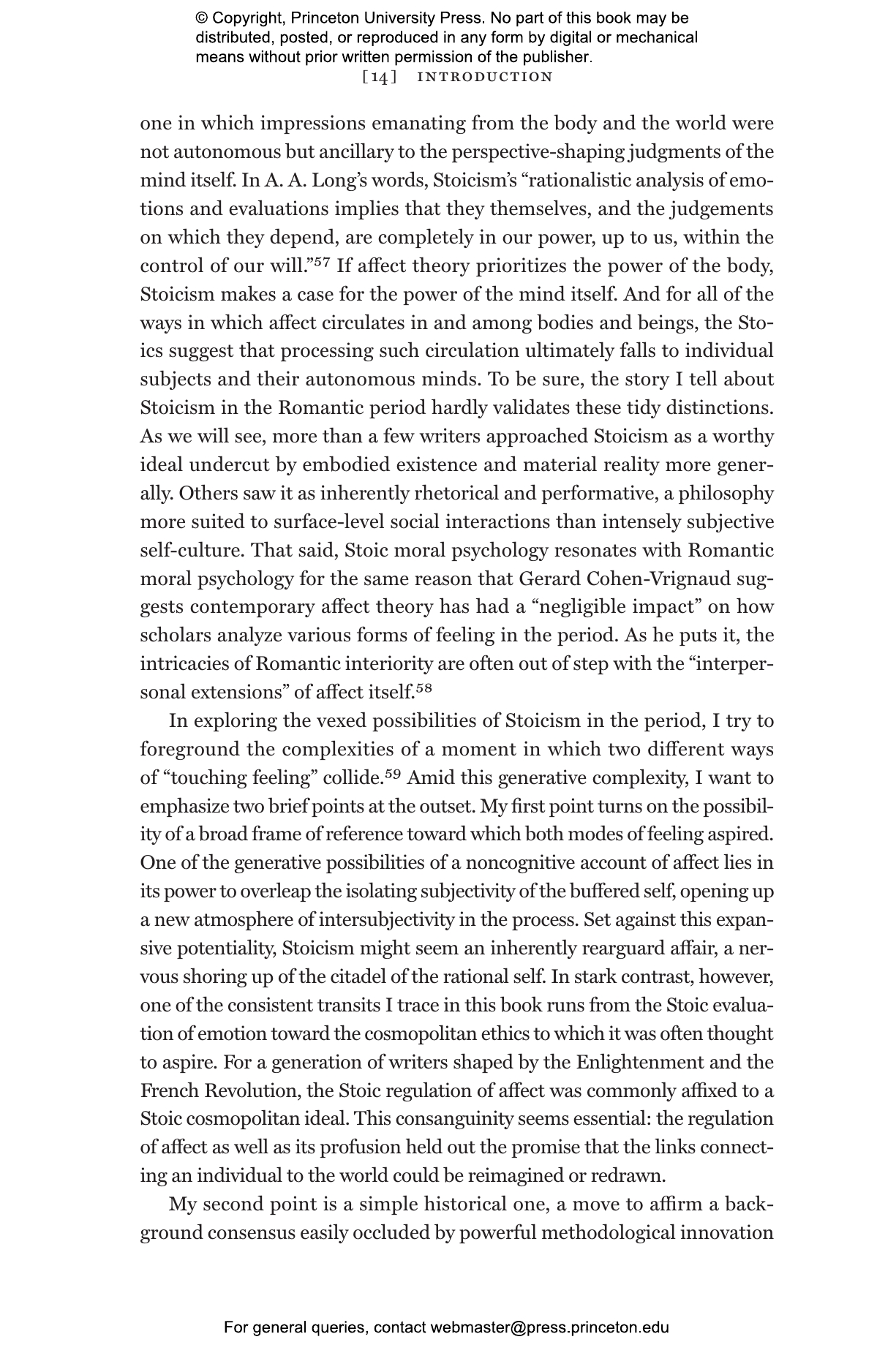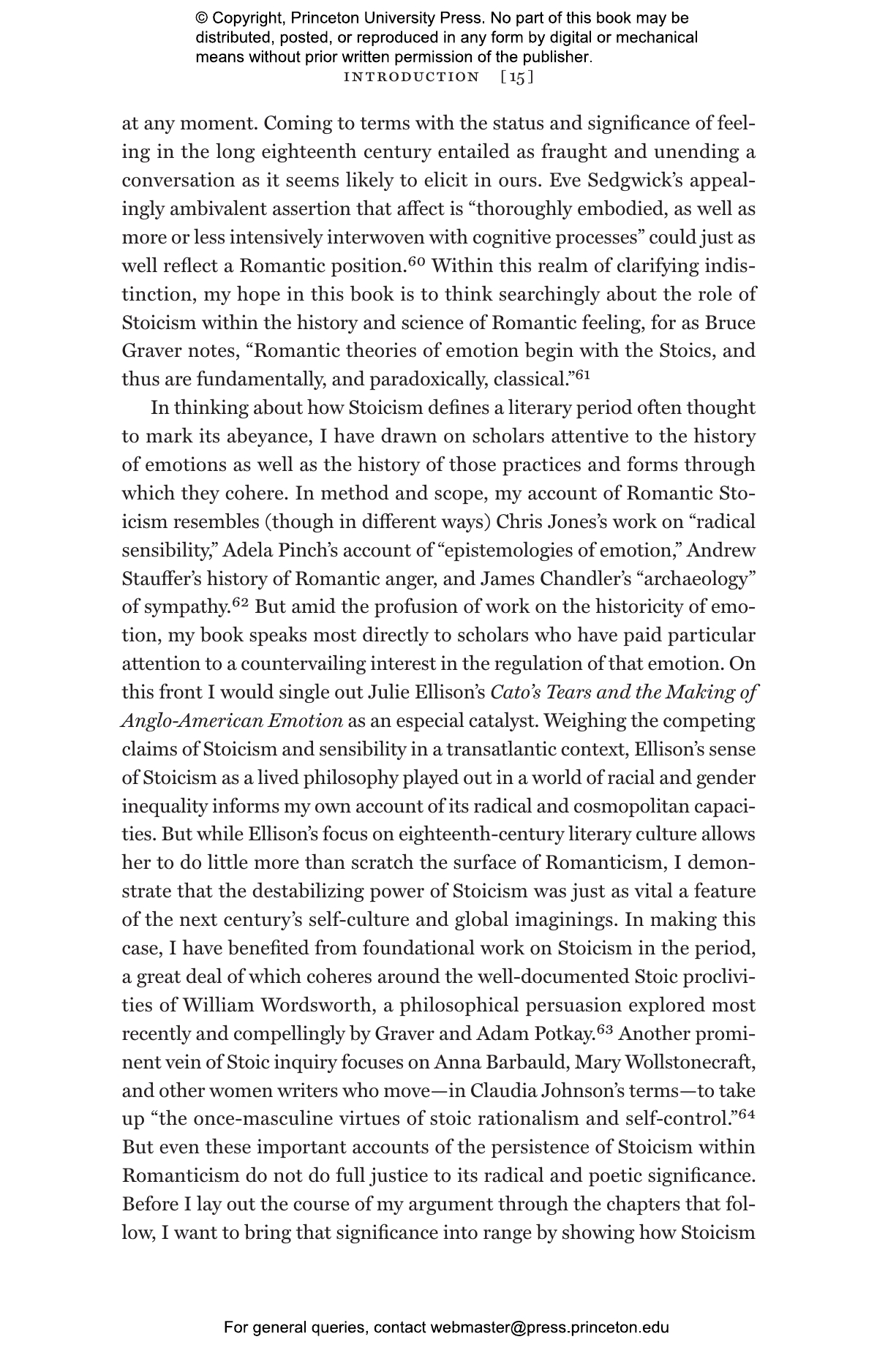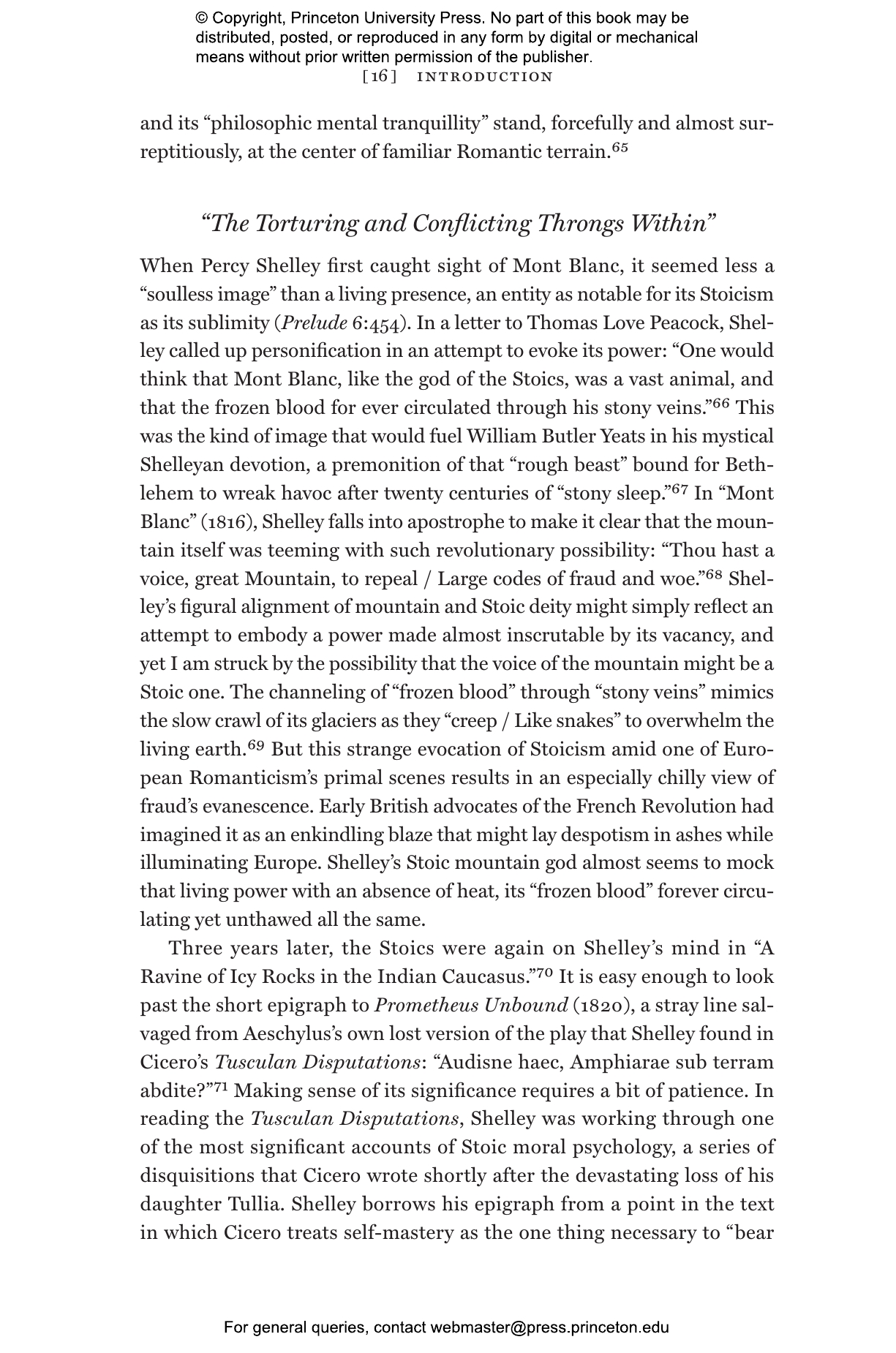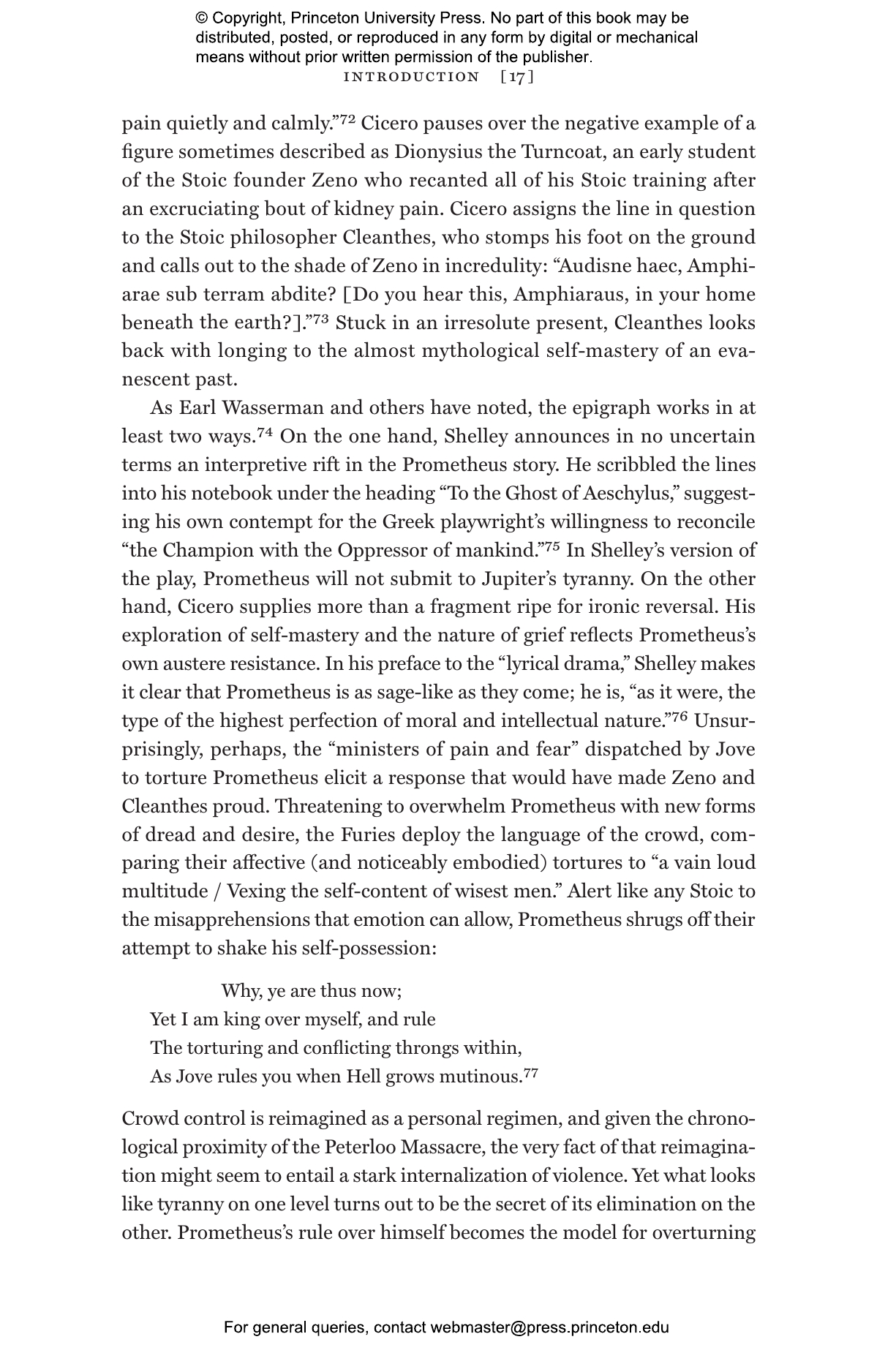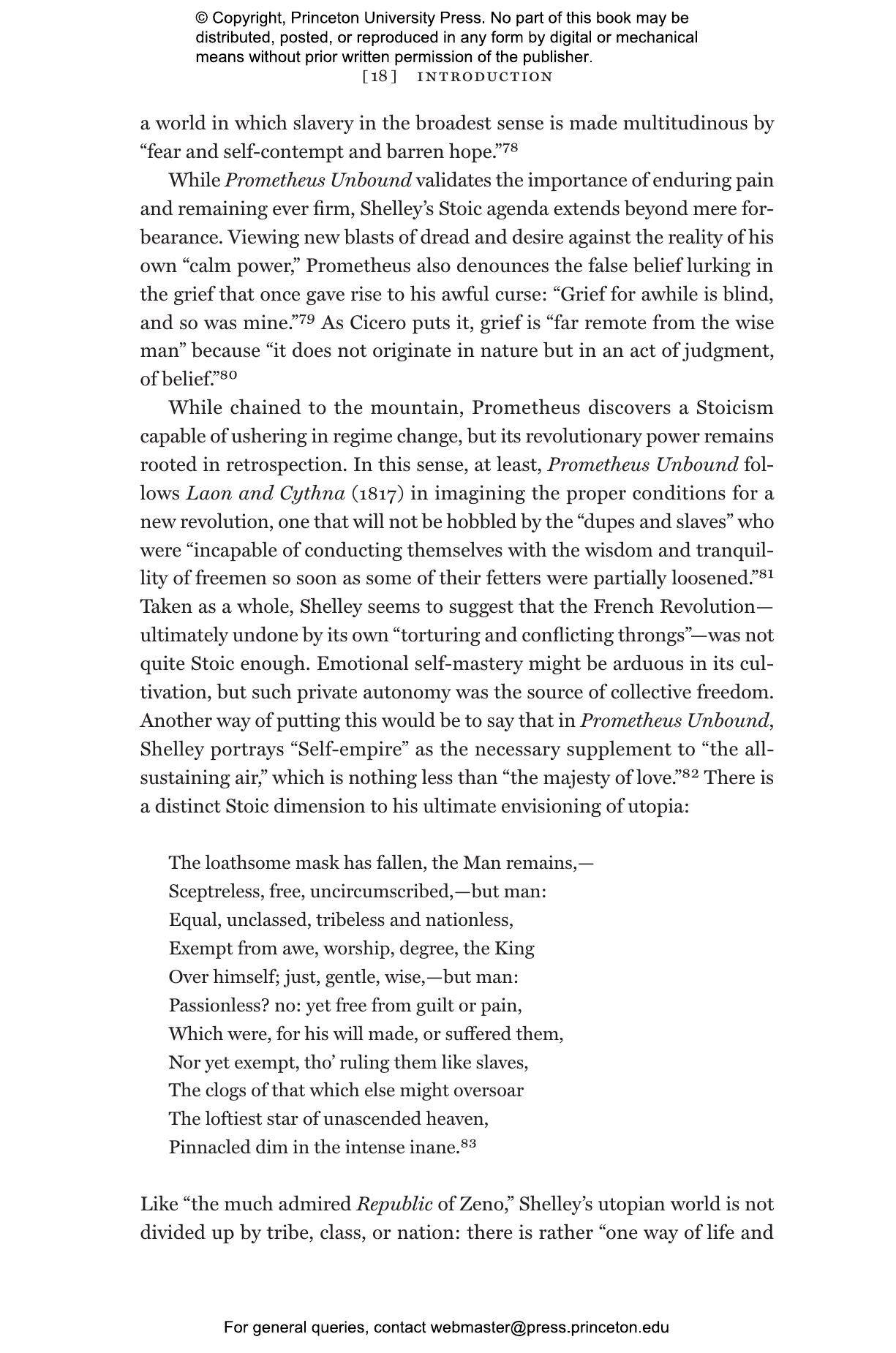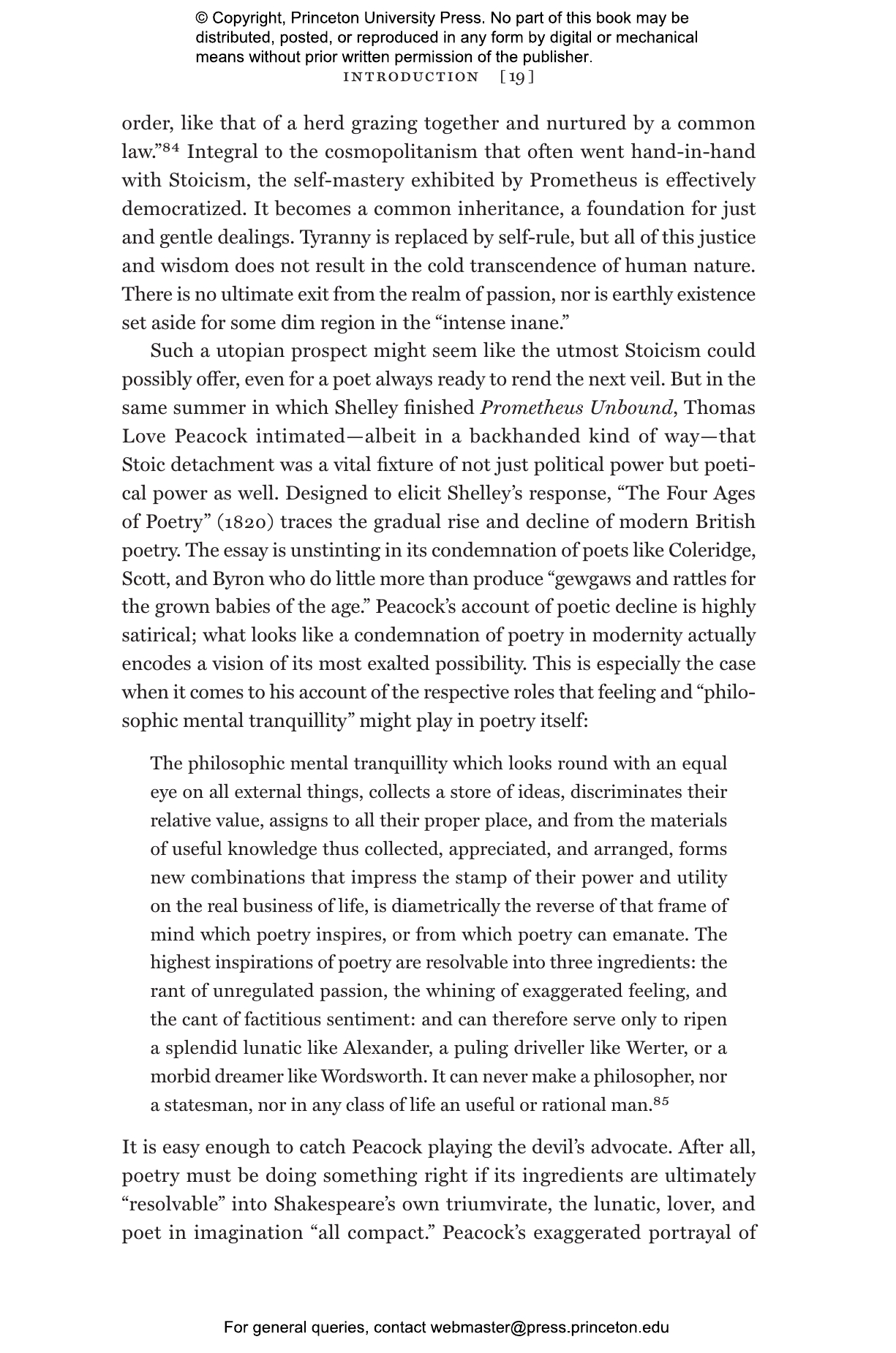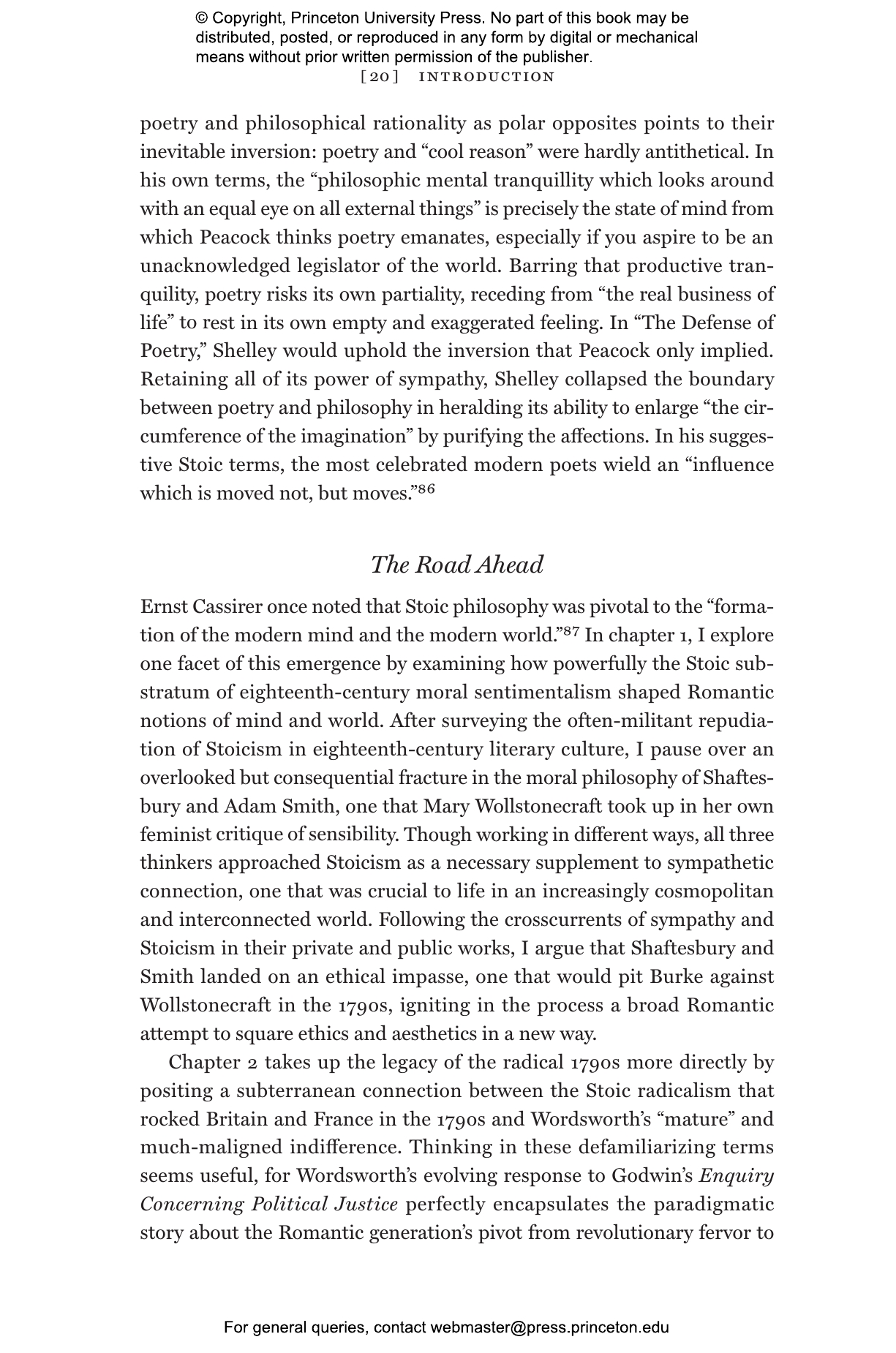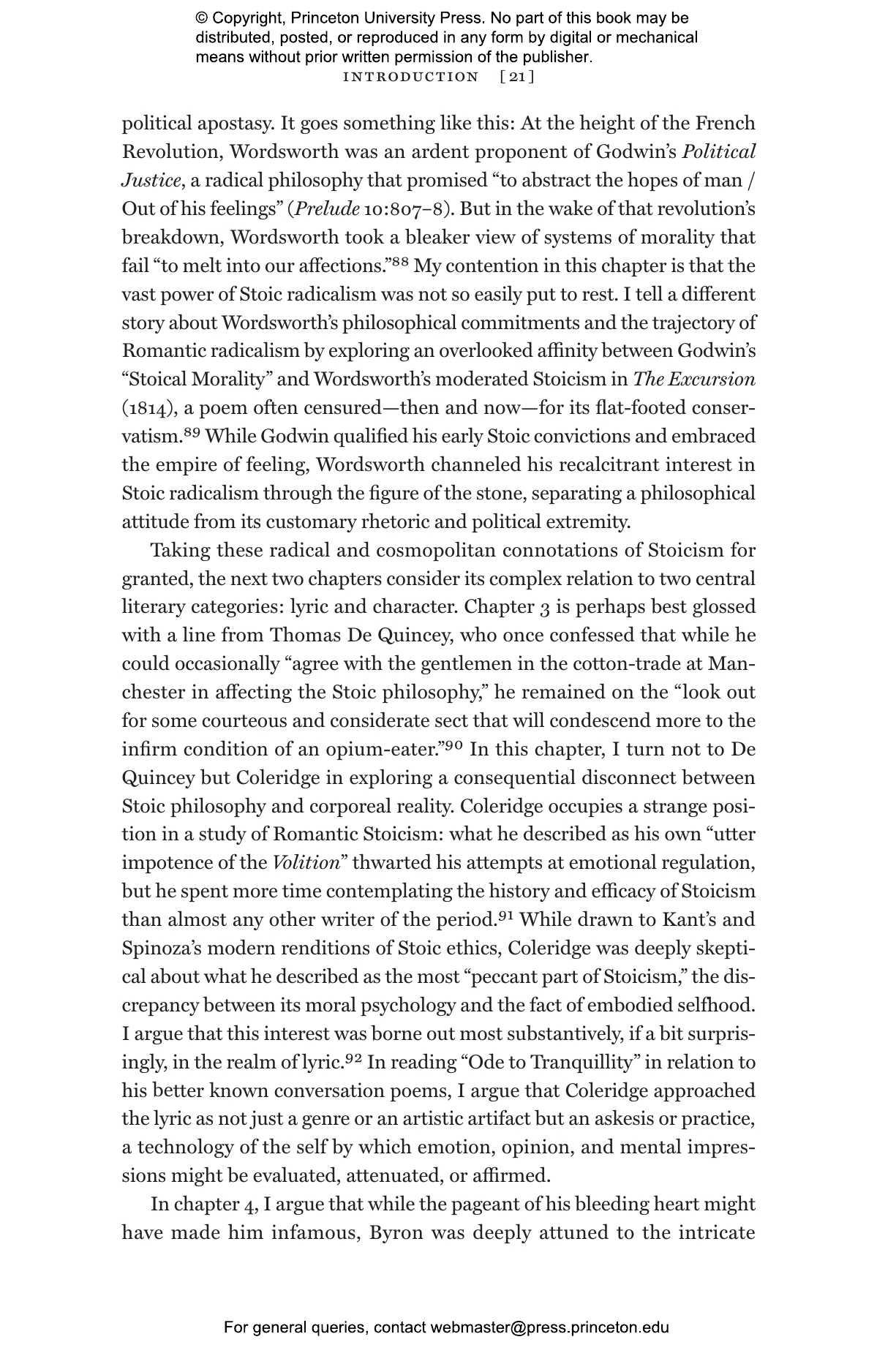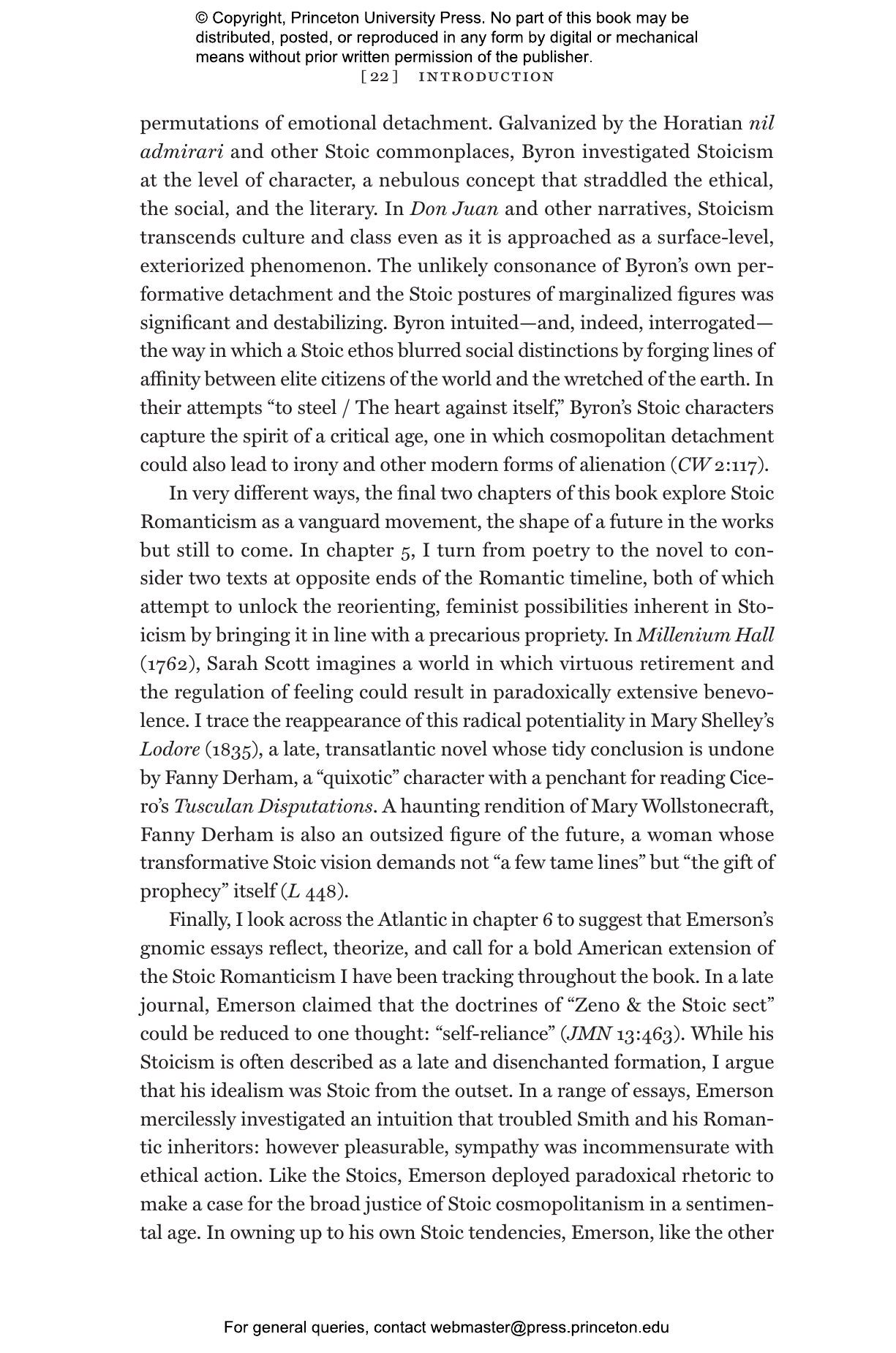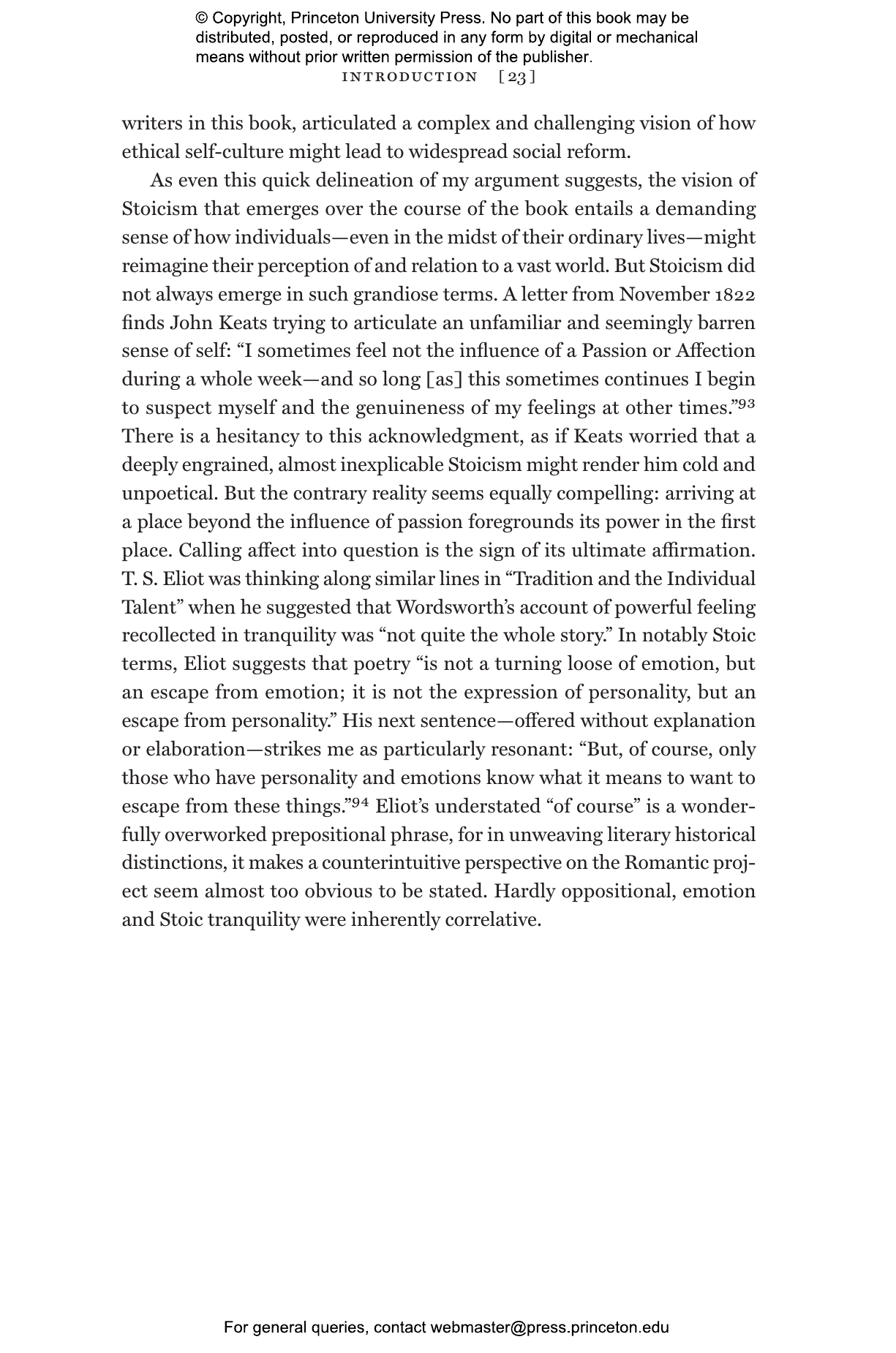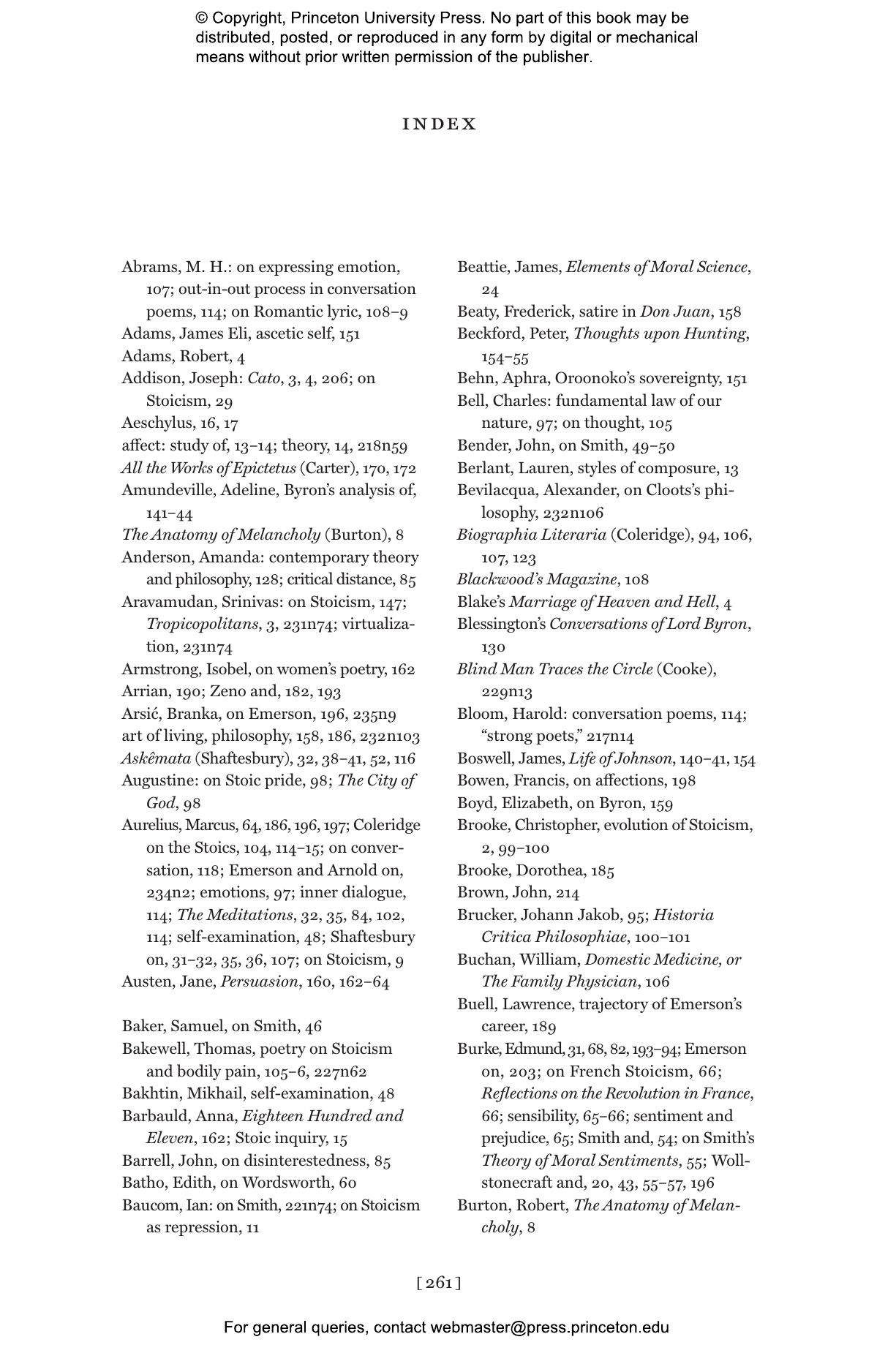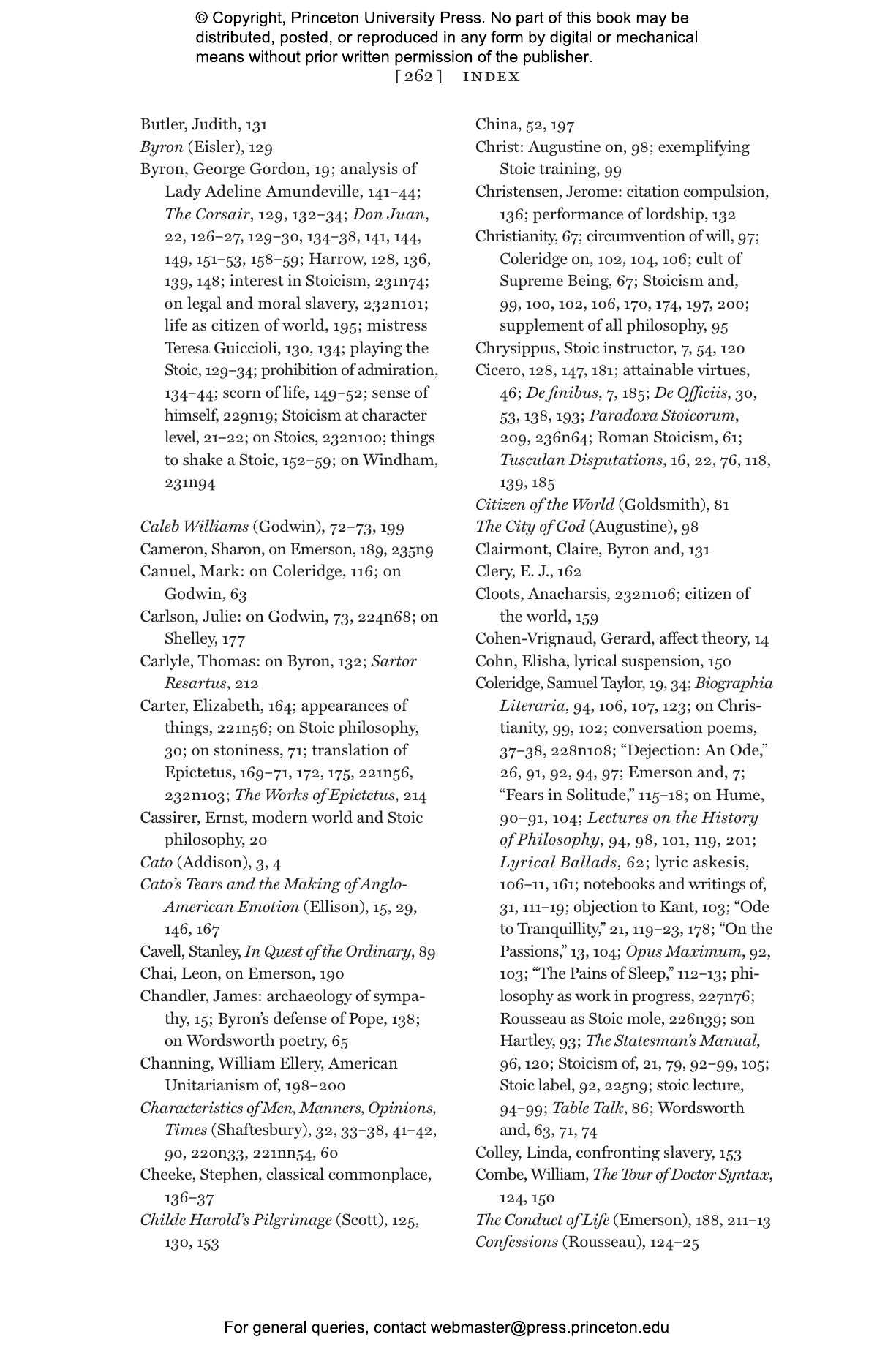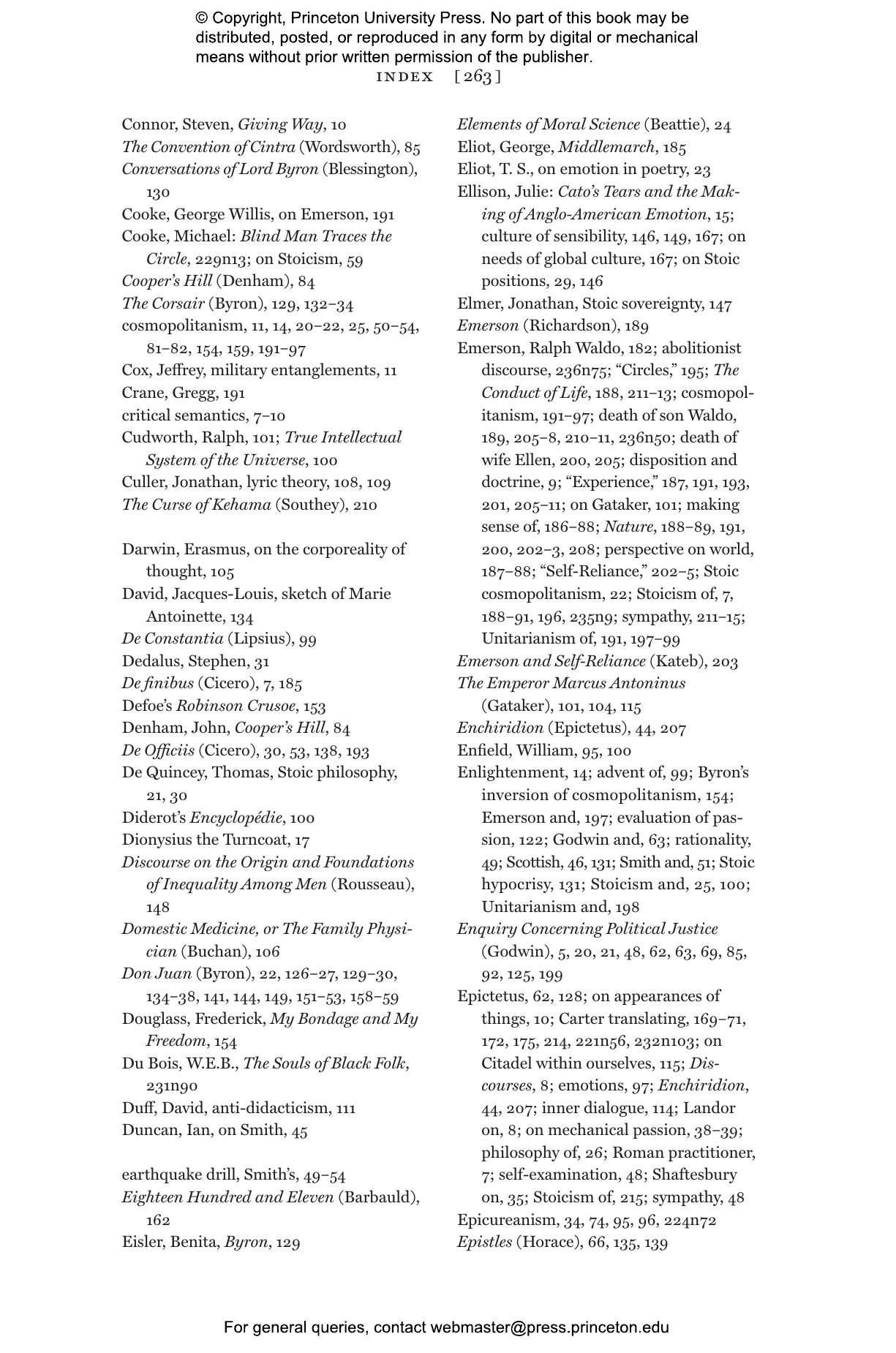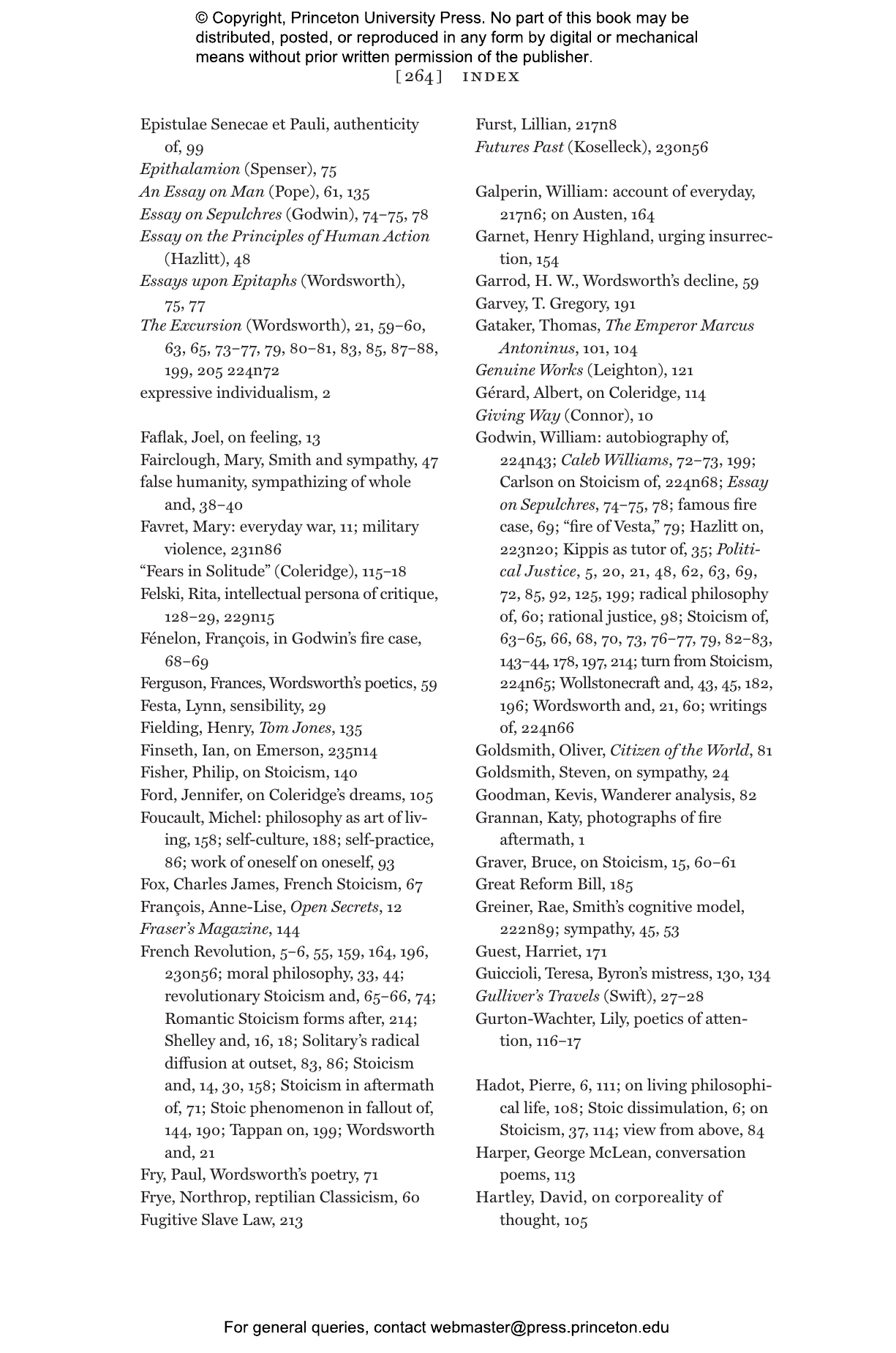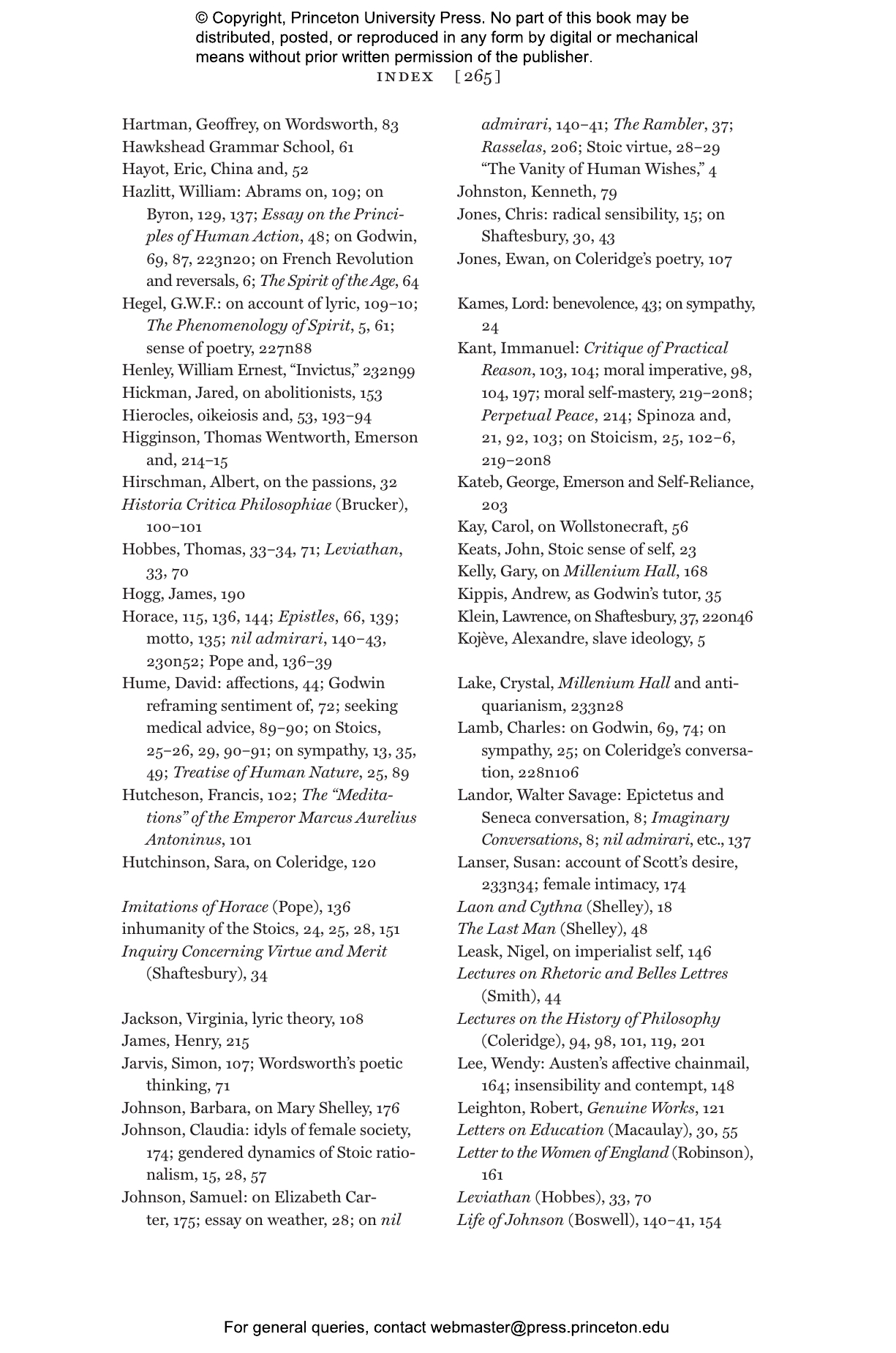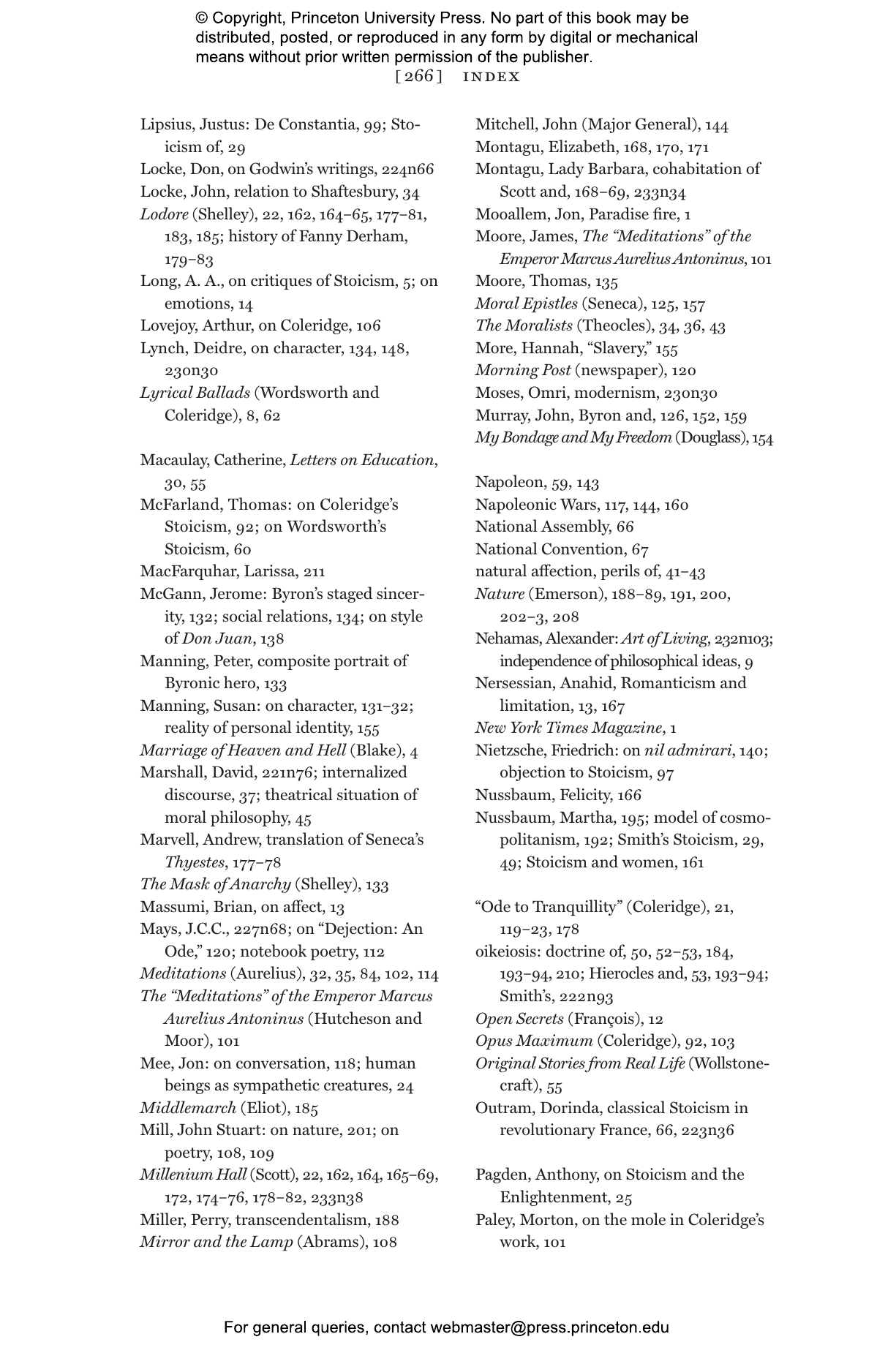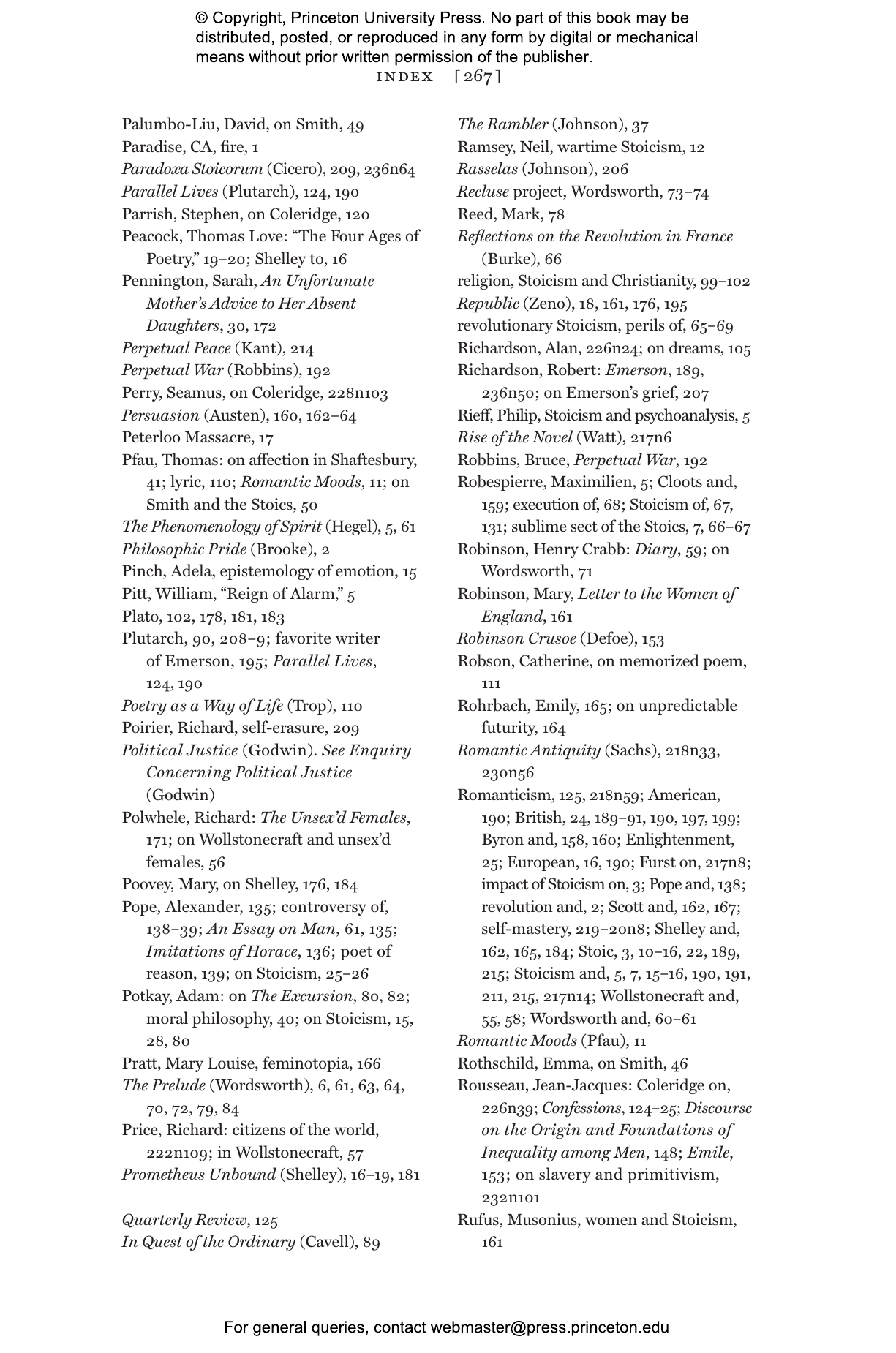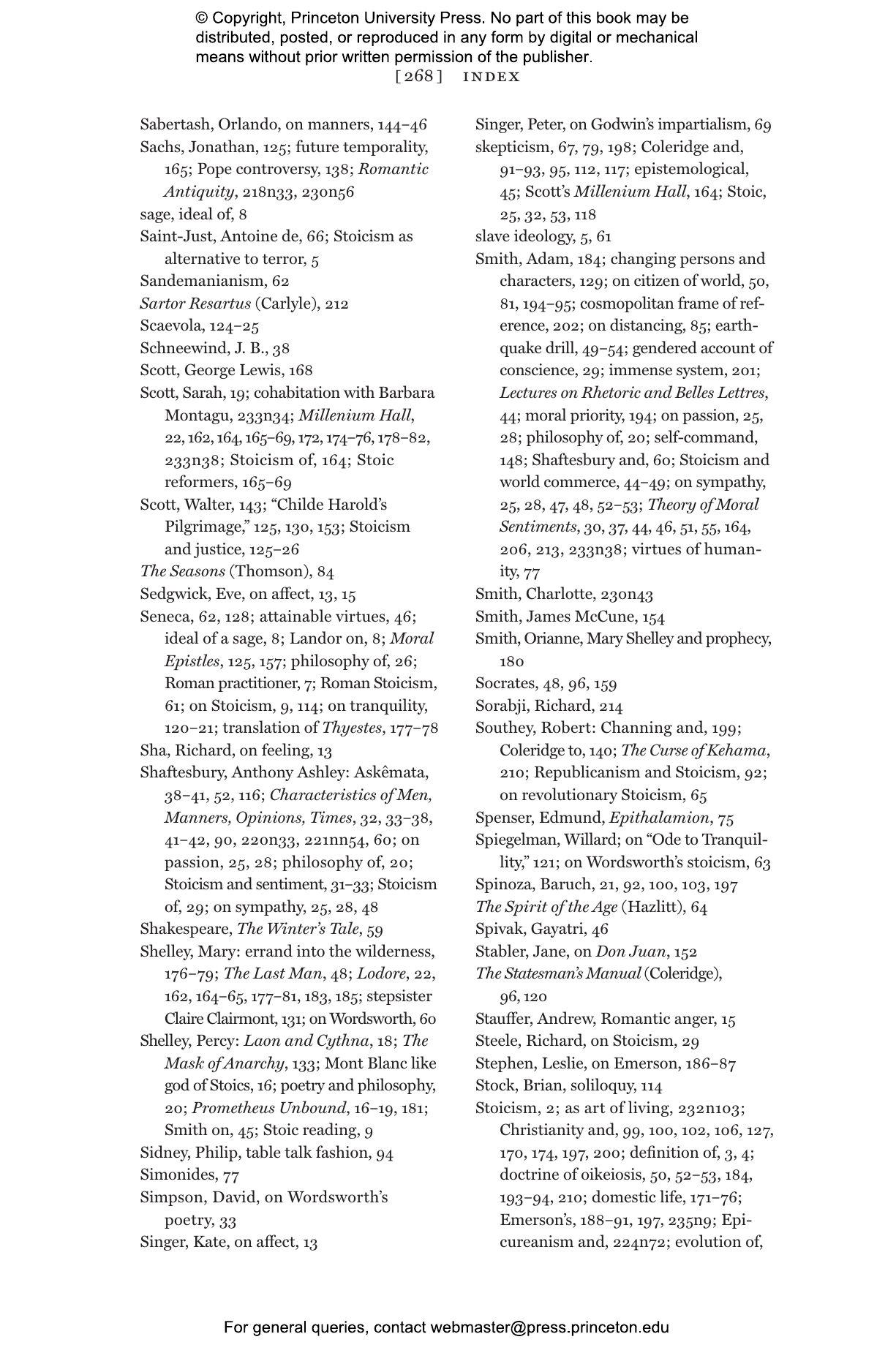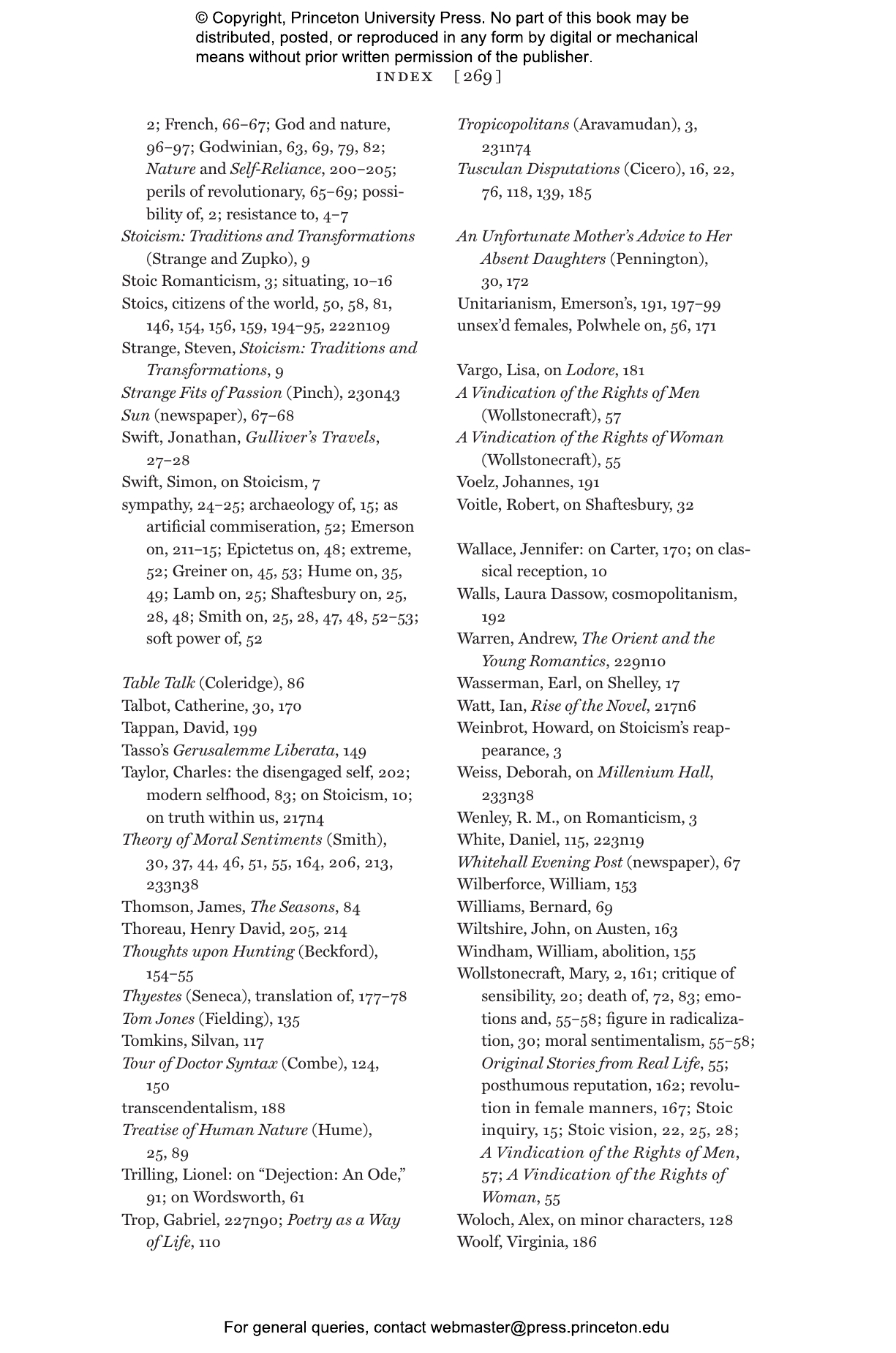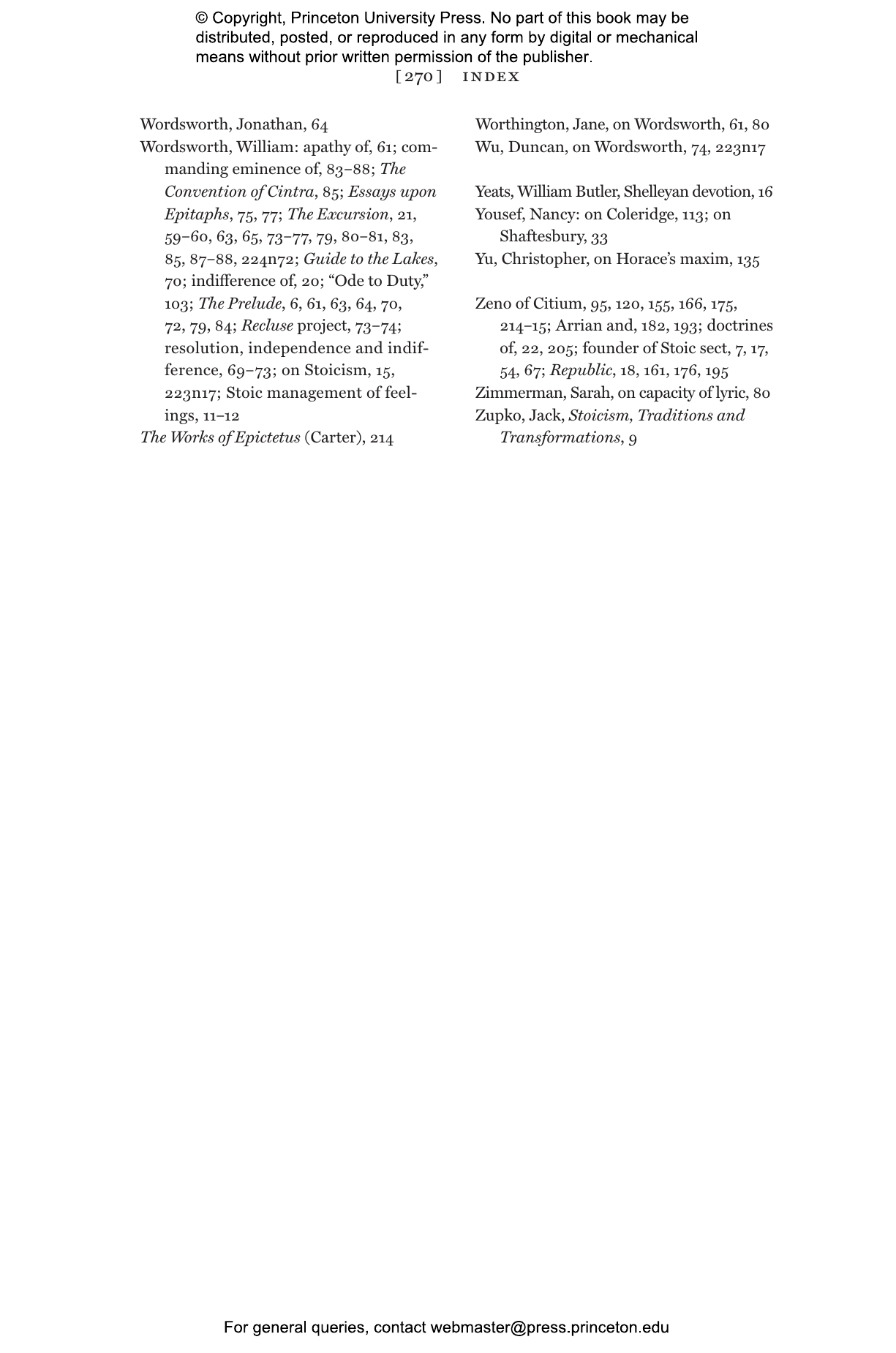Stoic philosophers and Romantic writers might seem to have nothing in common: the ancient Stoics championed the elimination of emotion, and Romantic writers made a bold new case for expression, adopting “powerful feeling” as the bedrock of poetry. Stoic Romanticism and the Ethics of Emotion refutes this notion by demonstrating that Romantic-era writers devoted a surprising amount of attention to Stoicism and its dispassionate mandate. Jacob Risinger explores the subterranean but vital life of Stoic philosophy in British and American Romanticism, from William Wordsworth to Ralph Waldo Emerson. He shows that the Romantic era—the period most polemically invested in emotion as art’s mainspring—was also captivated by the Stoic idea that aesthetic and ethical judgment demanded the transcendence of emotion.
Risinger argues that Stoicism was a central preoccupation in a world destabilized by the French Revolution. Creating a space for the skeptical evaluation of feeling and affect, Stoicism became the subject of poetic reflection, ethical inquiry, and political debate. Risinger examines Wordsworth’s affinity with William Godwin’s evolving philosophy, Samuel Taylor Coleridge’s attempt to embed Stoic reflection within the lyric itself, Lord Byron’s depiction of Stoicism at the level of character, visions of a Stoic future in novels by Mary Shelley and Sarah Scott, and the Stoic foundations of Emerson’s arguments for self-reliance and social reform.
Stoic Romanticism and the Ethics of Emotion illustrates how the austerity of ancient philosophy was not inimical to Romantic creativity, but vital to its realization.
"[A] useful book. . . . Risinger's explanations of the importance of Stoicism in the period's literature make a valuable contribution to the literature of the Romantic period."—Choice Reviews
"Stoic Romanticism and the Ethics of Emotion is a sustained and sensitive engagement with a range of literary work that shows the nuances of changing perspectives in a changing world. It is no small feat that virtually every sentence is a triumph of craftsmanship, or that the text reads with a confidence and ease found usually in the most seasoned critics."—Denise Gigante, Nineteenth-Century Literature
"With elegant readings that work against the grain of the consistent and determinate, Risinger remind us that writers like Wordsworth and Wollstonecraft were not simply subject over time to shifting political views, but, in the space of a single poem or essay, under the heady influence of diffuse competing aesthetic and ethical commitments."—Samantha Botz, European Romantic Review
"Stoic Romanticism and the Ethics of Emotion is an excellent study. Erudite, eloquent, and critically expert, it is all the more remarkable for being a first book. . . . Risinger has blazed a bright trail into Stoic Romanticism in England and America."—Adam Potkay, The Wordsworth Circle
"Erudite and elegantly argued. . . . So utterly effective is Risinger at showing that ‘Romantic Stoicism is a corollary of the period’s “gravitational pull toward feeling” rather than a blinkered rejection of that force’ . . . that one is left wondering, as with any fine book, how this never occurred to anyone until now."—Julie Murray, Eighteenth-Century Fiction
“We've long known some of Stoicism's impact on English Romantic writing, but in Jacob Risinger's new book we see the whole story for the first time. Stoic Romanticism and the Ethics of Emotion shows, with beautiful clarity and deep erudition, that the presence of submerged Stoic themes in the revolutionary decade definitively shaped Romanticism's afterlife. This will be a book to think with for some time to come.”—Simon Swift, author of Romanticism, Literature and Philosophy
"Stoic Romanticism and the Ethics of Emotion is literary criticism that doubles as the best kind of intellectual history: assured, clear, fresh on its feet, nimble, and provocative. With breadth and scope, clear writing, and far-reaching theoretical and conceptual stakes, this impressive book represents a major rethinking of the central texts of Romanticism, and, indeed, a whole new understanding of Romanticism itself."—Jonathan Sachs, Concordia University
"In lucid, often elegant prose, Jacob Risinger’s Stoic Romanticism and the Ethics of Emotion builds on the renewed contemporary interest in Stoic ethics to demonstrate convincingly the centrality of ancient Stoic thought to a wide range of Romantic-era writers, from Wordsworth and Coleridge to Shelley and Emerson."—Bruce Graver, Providence College
